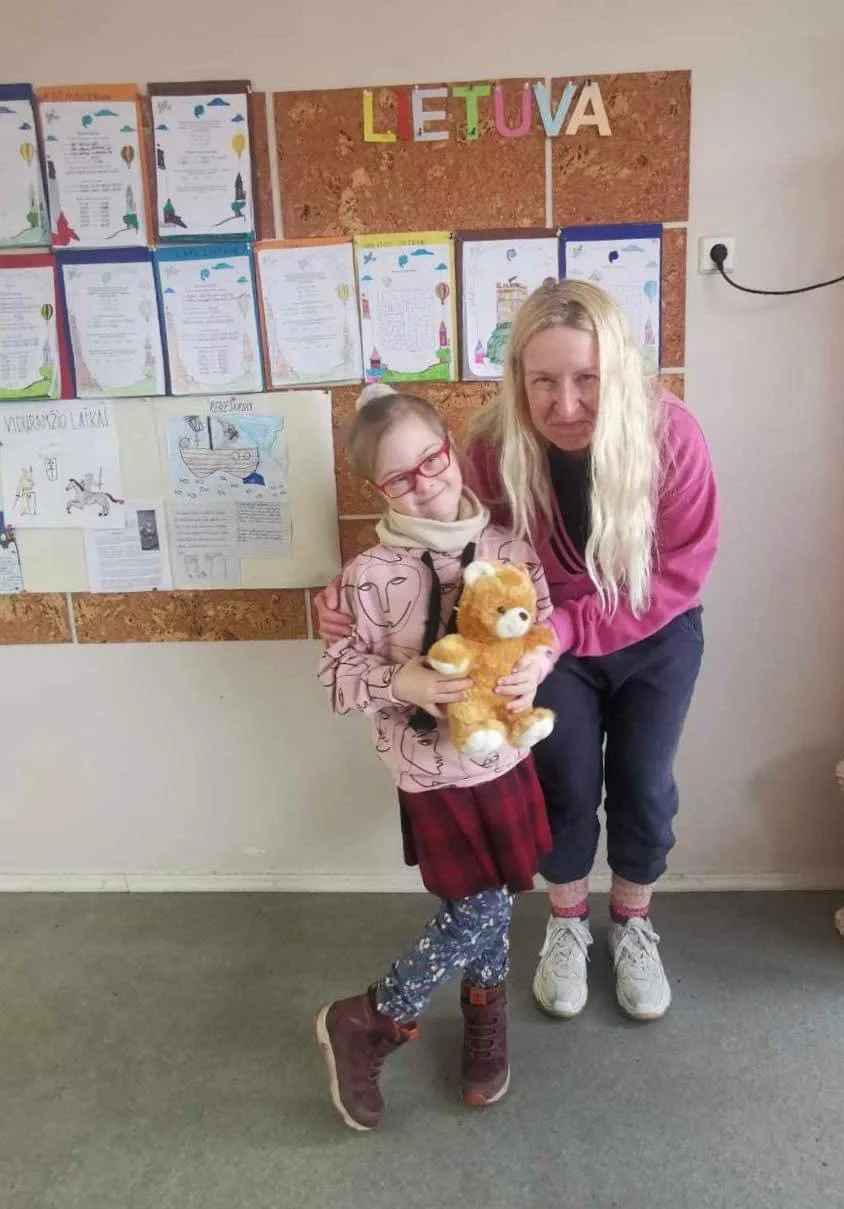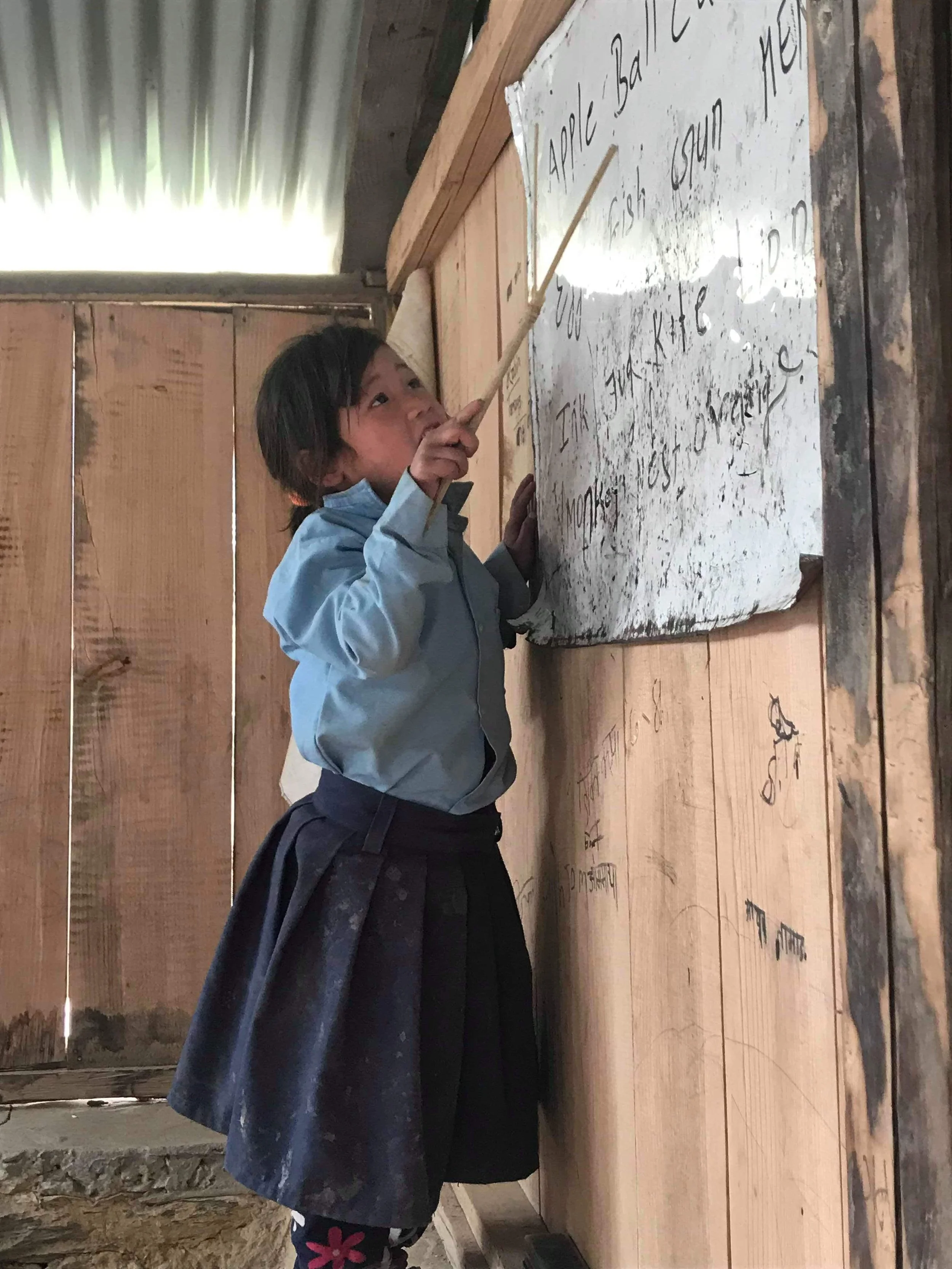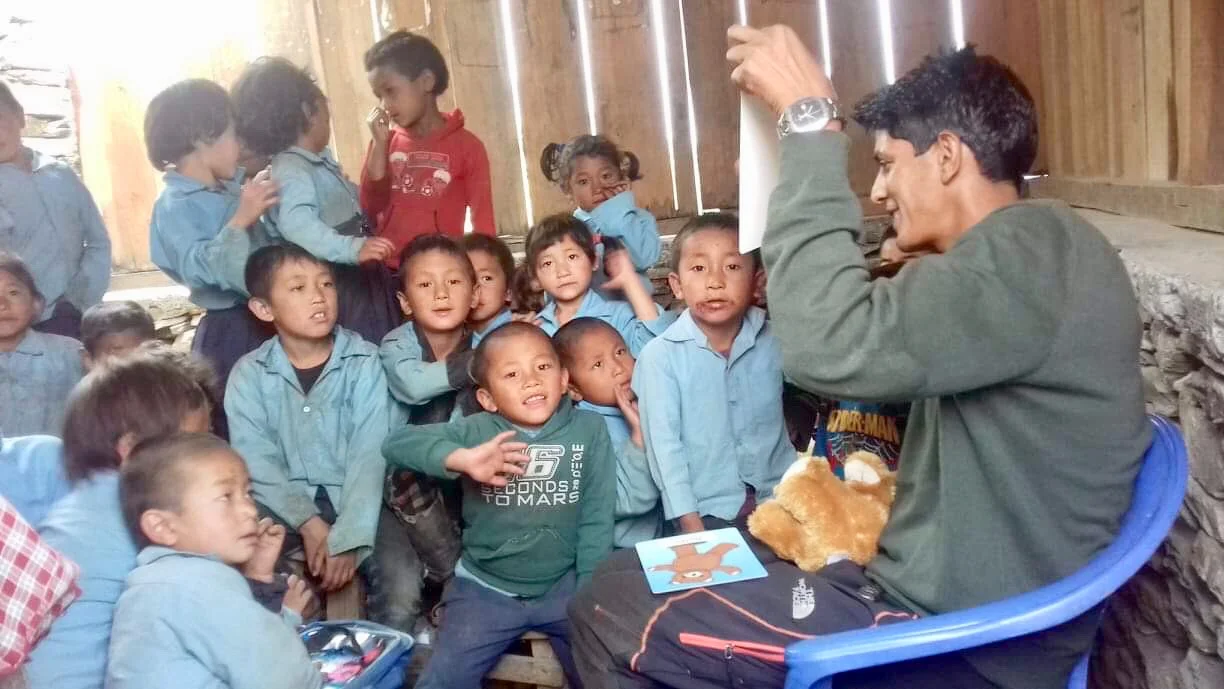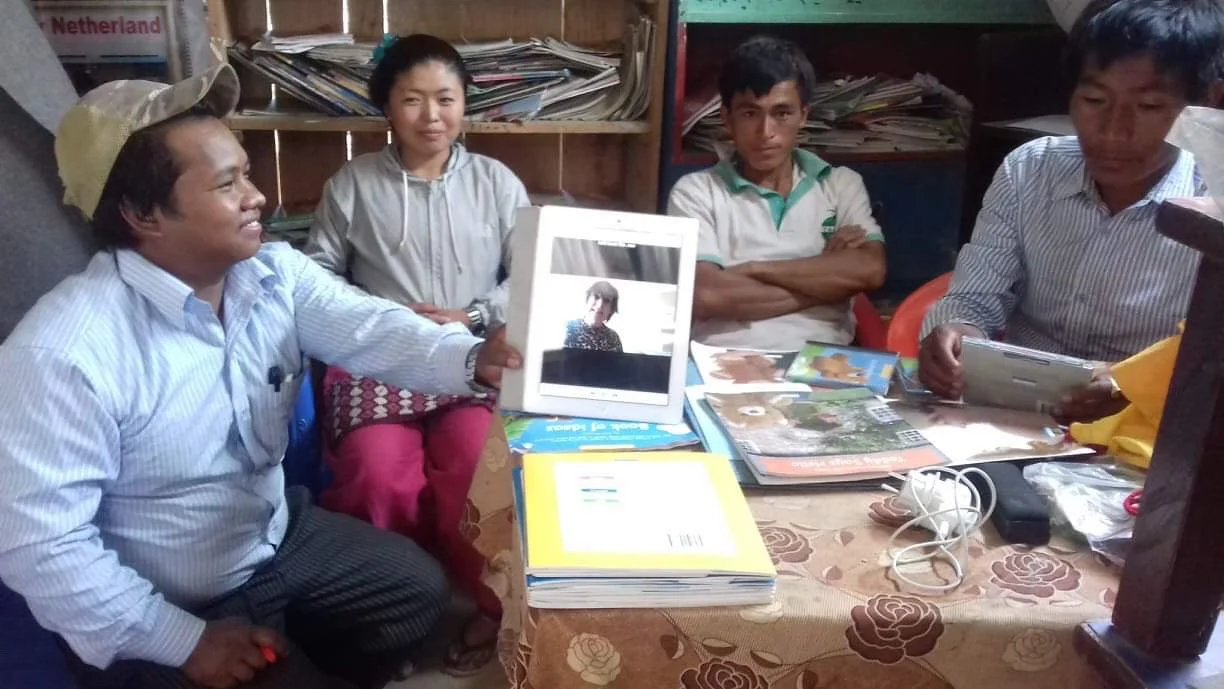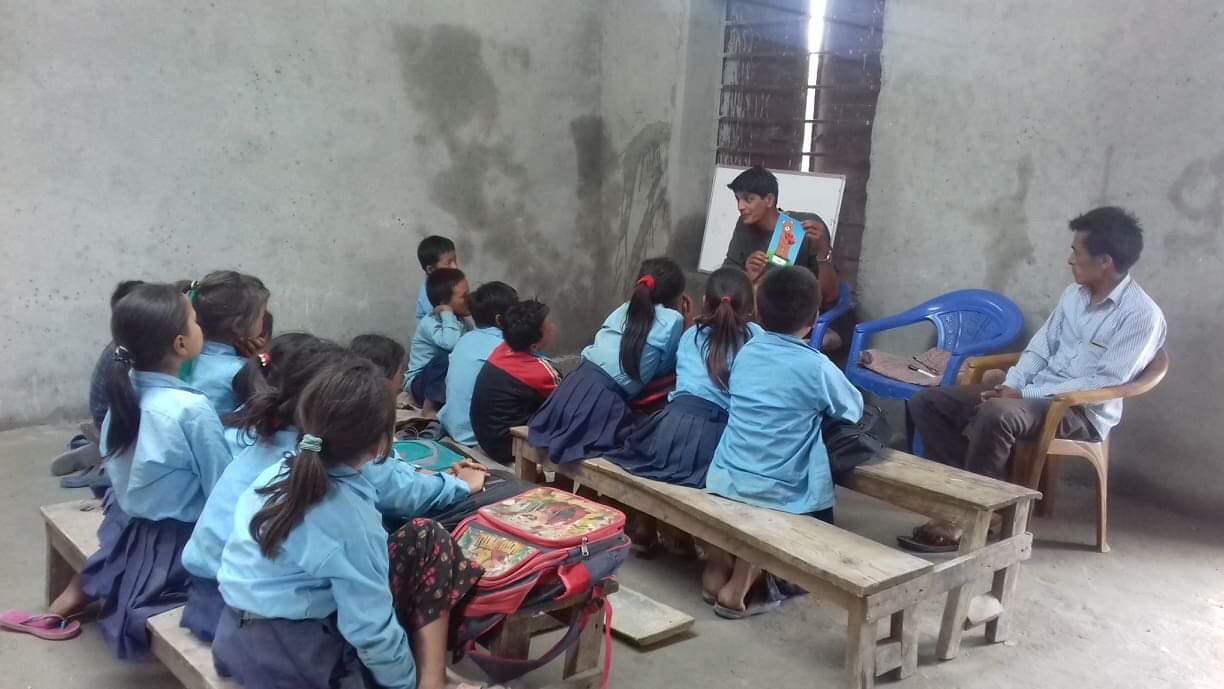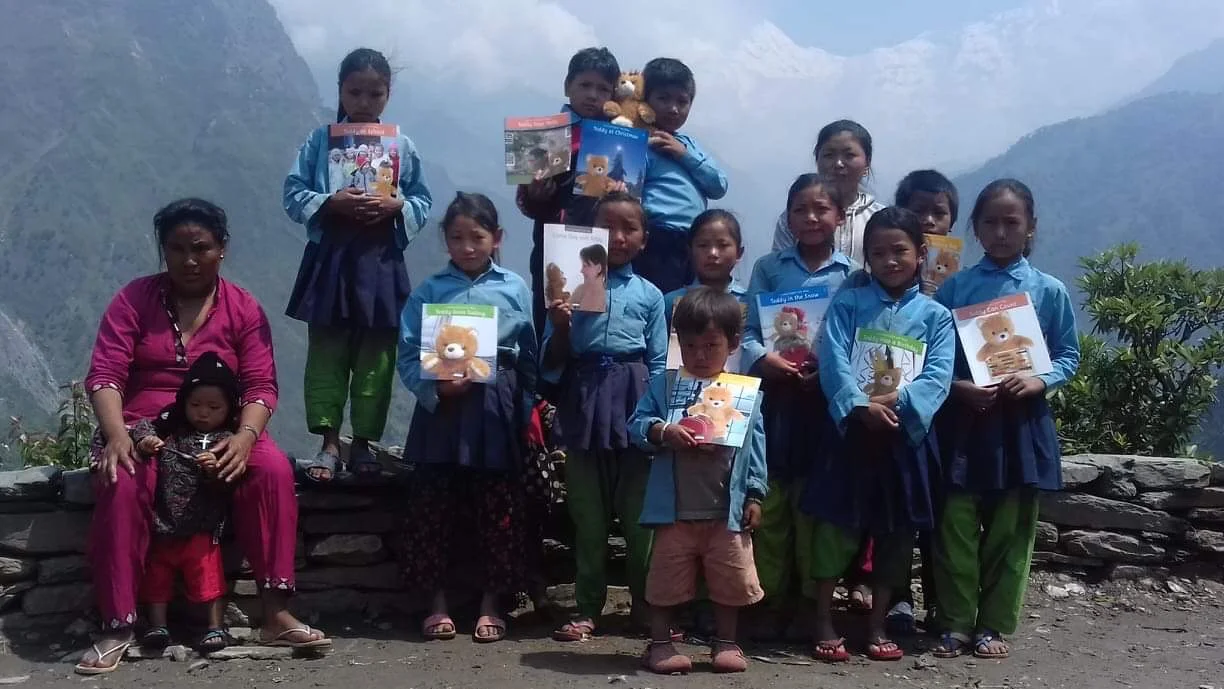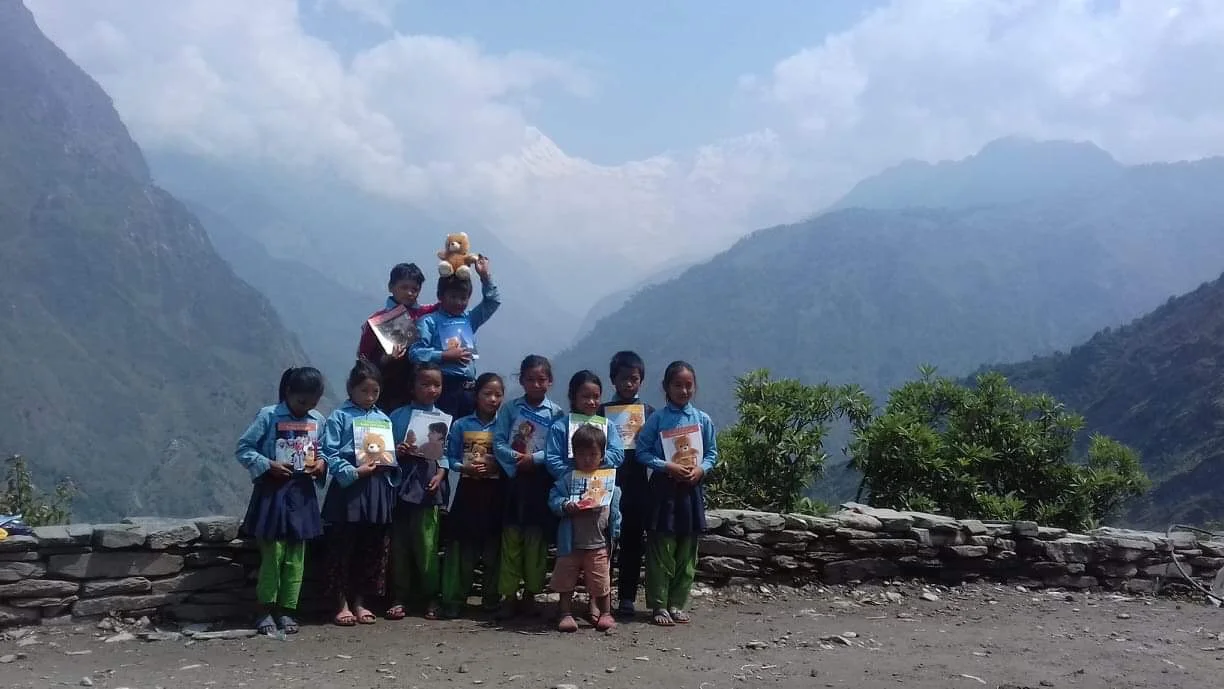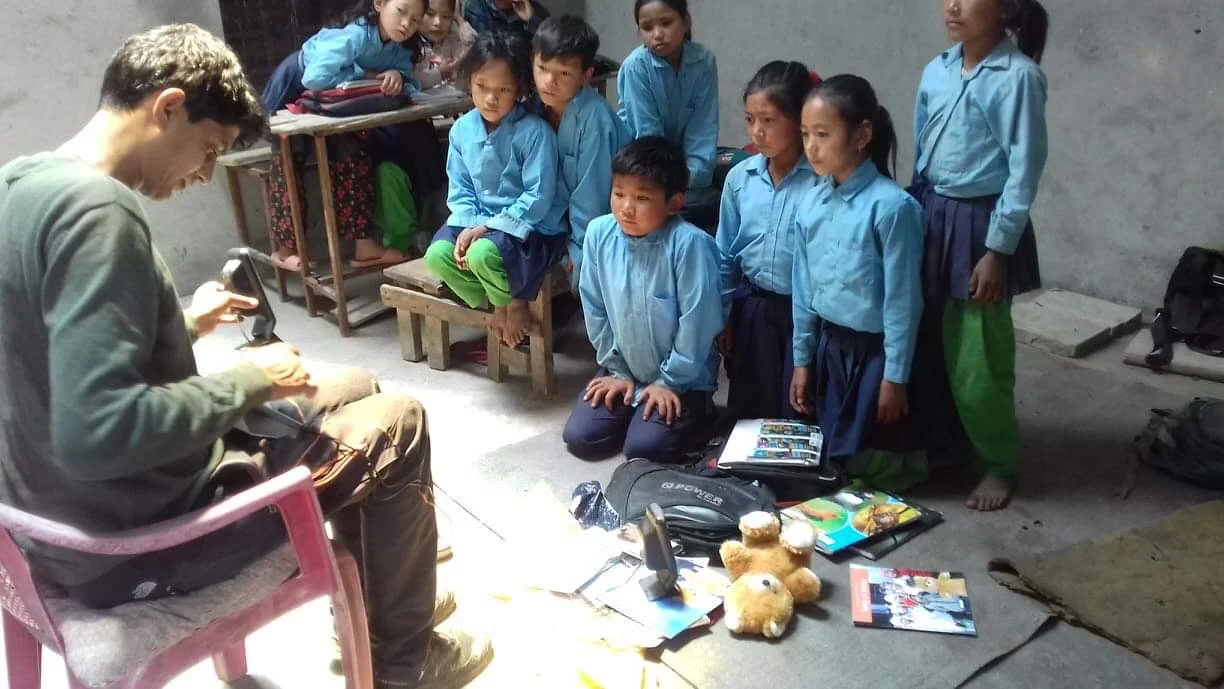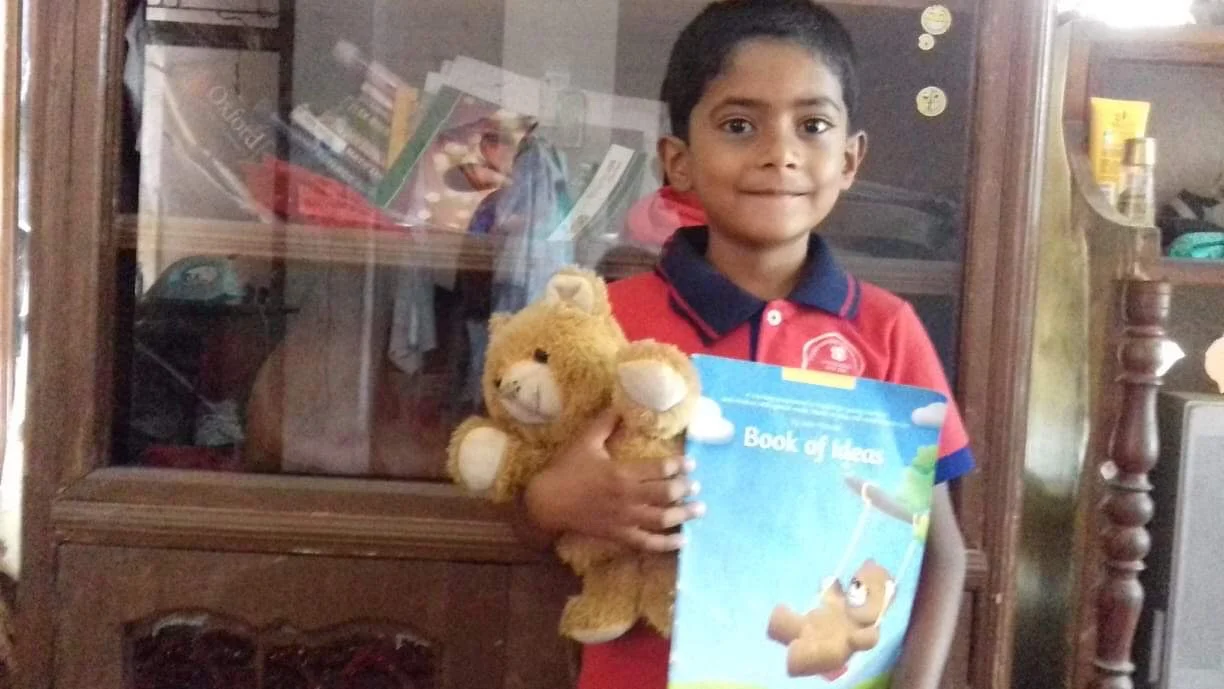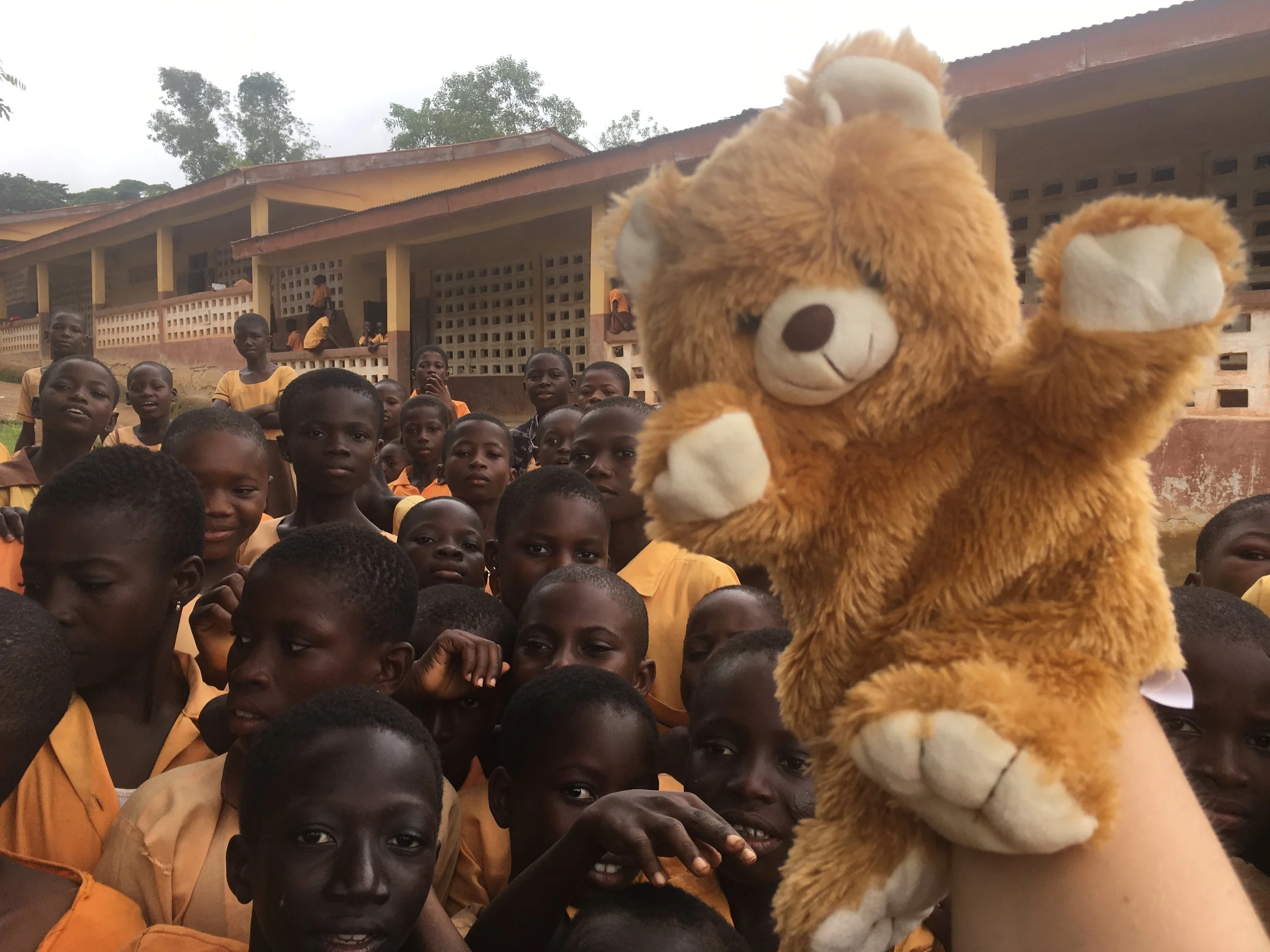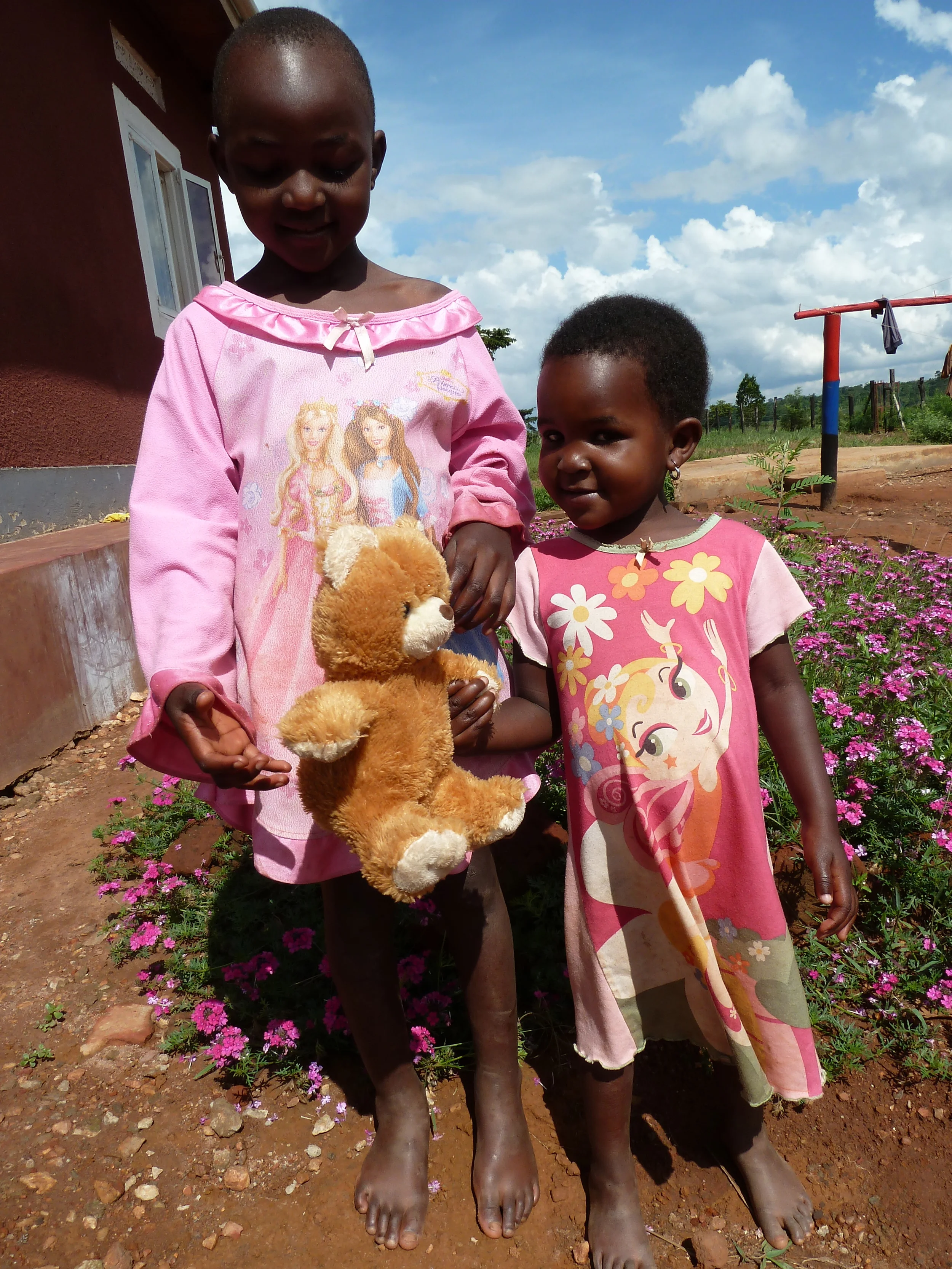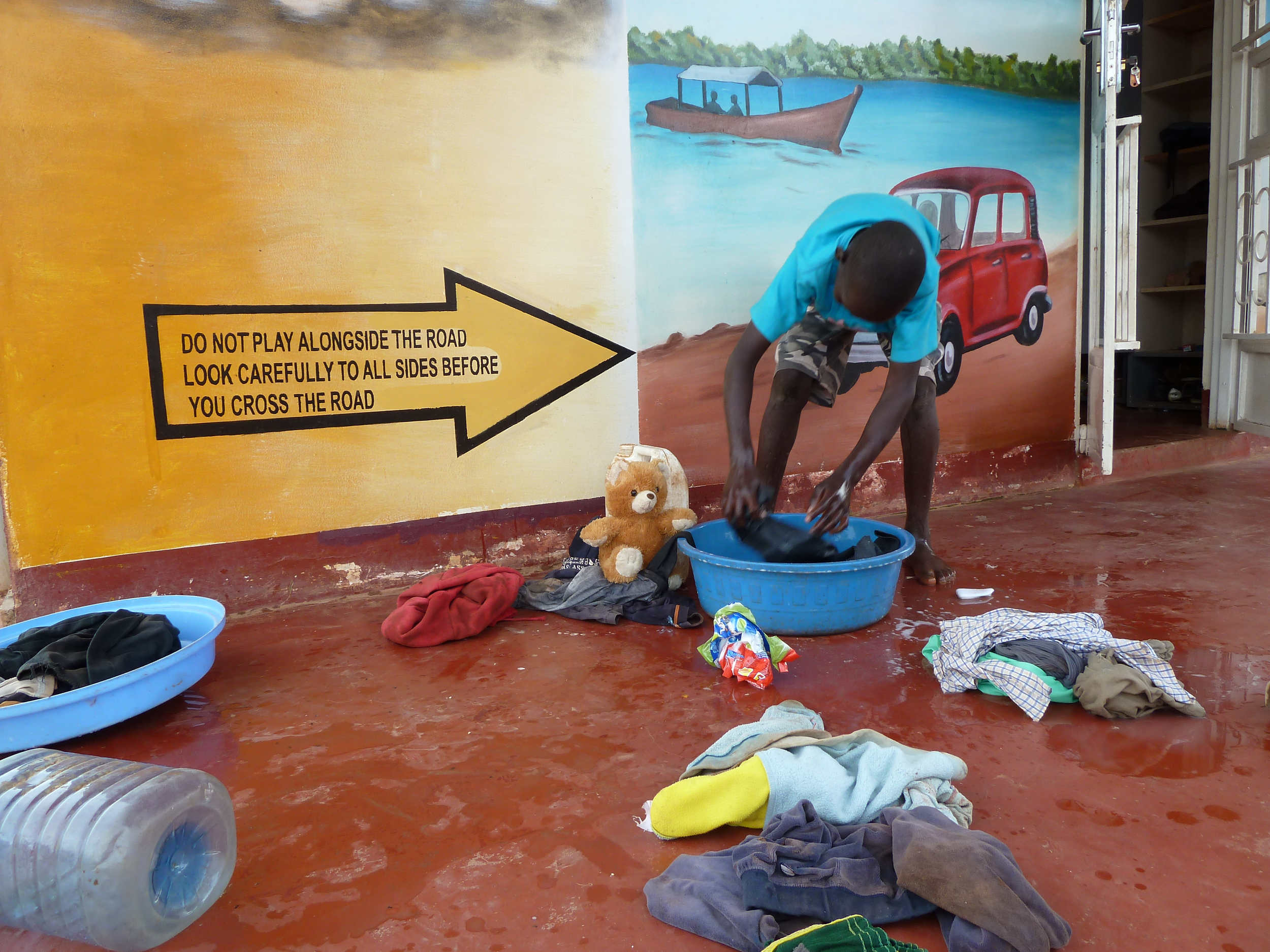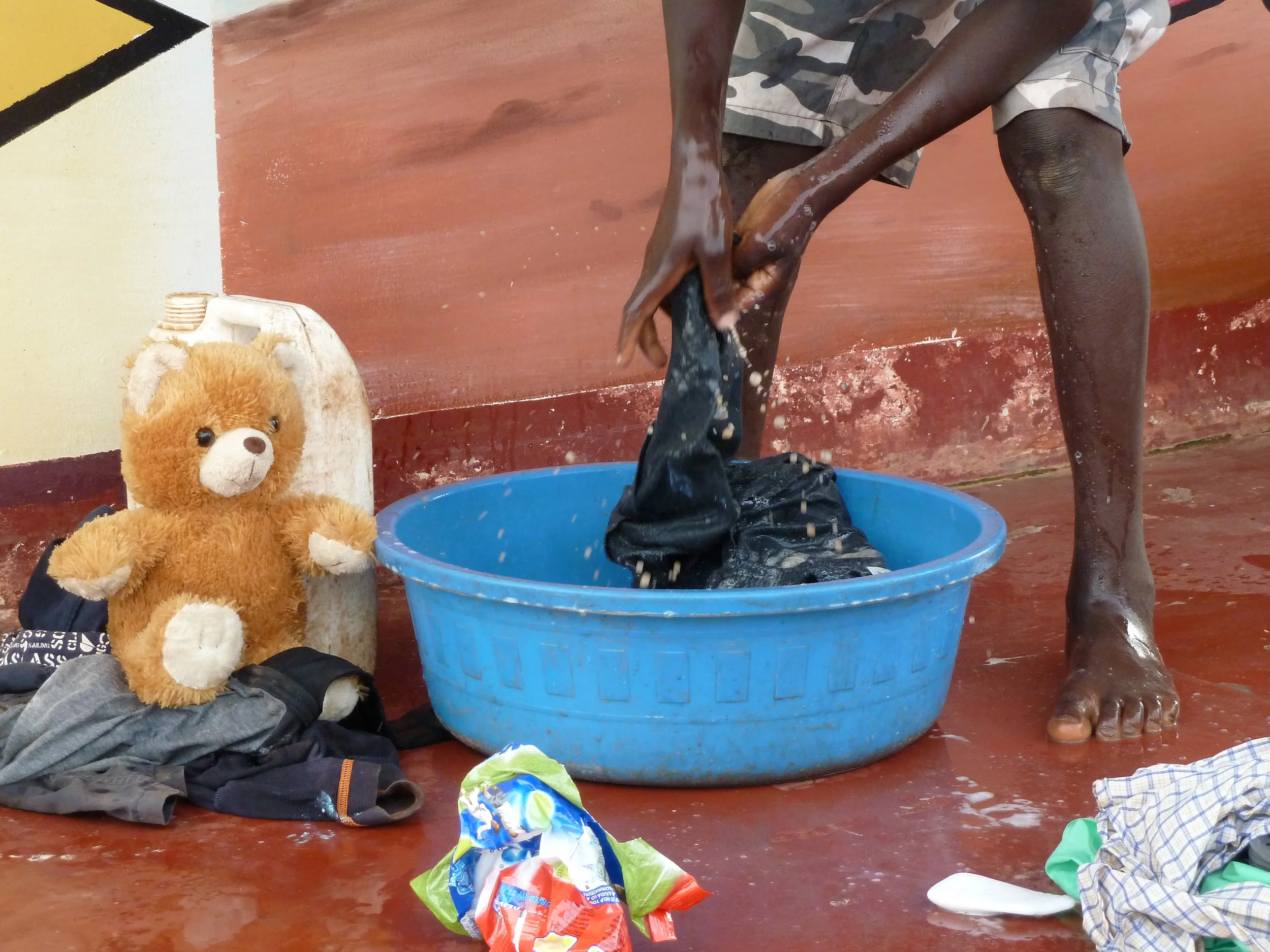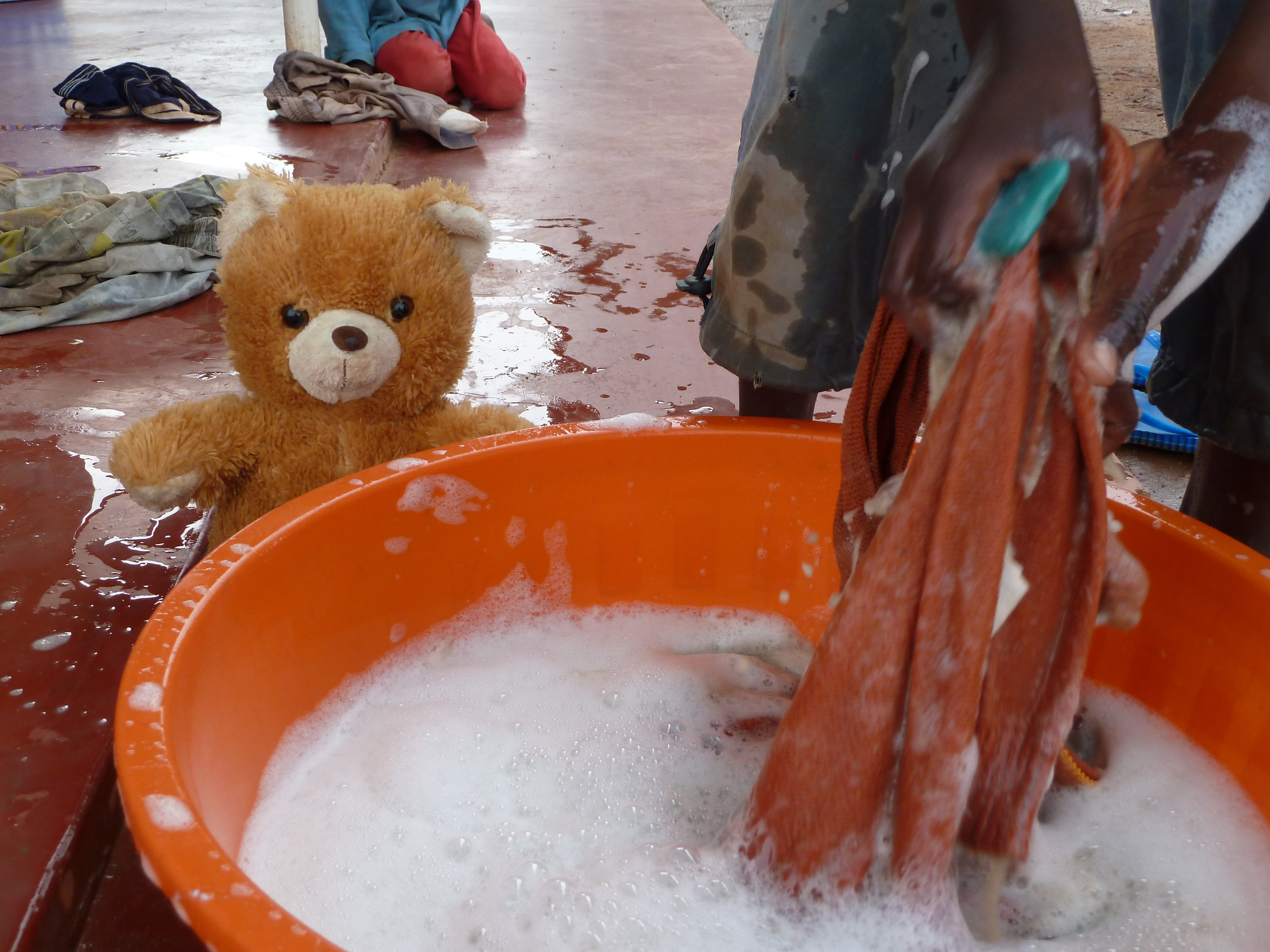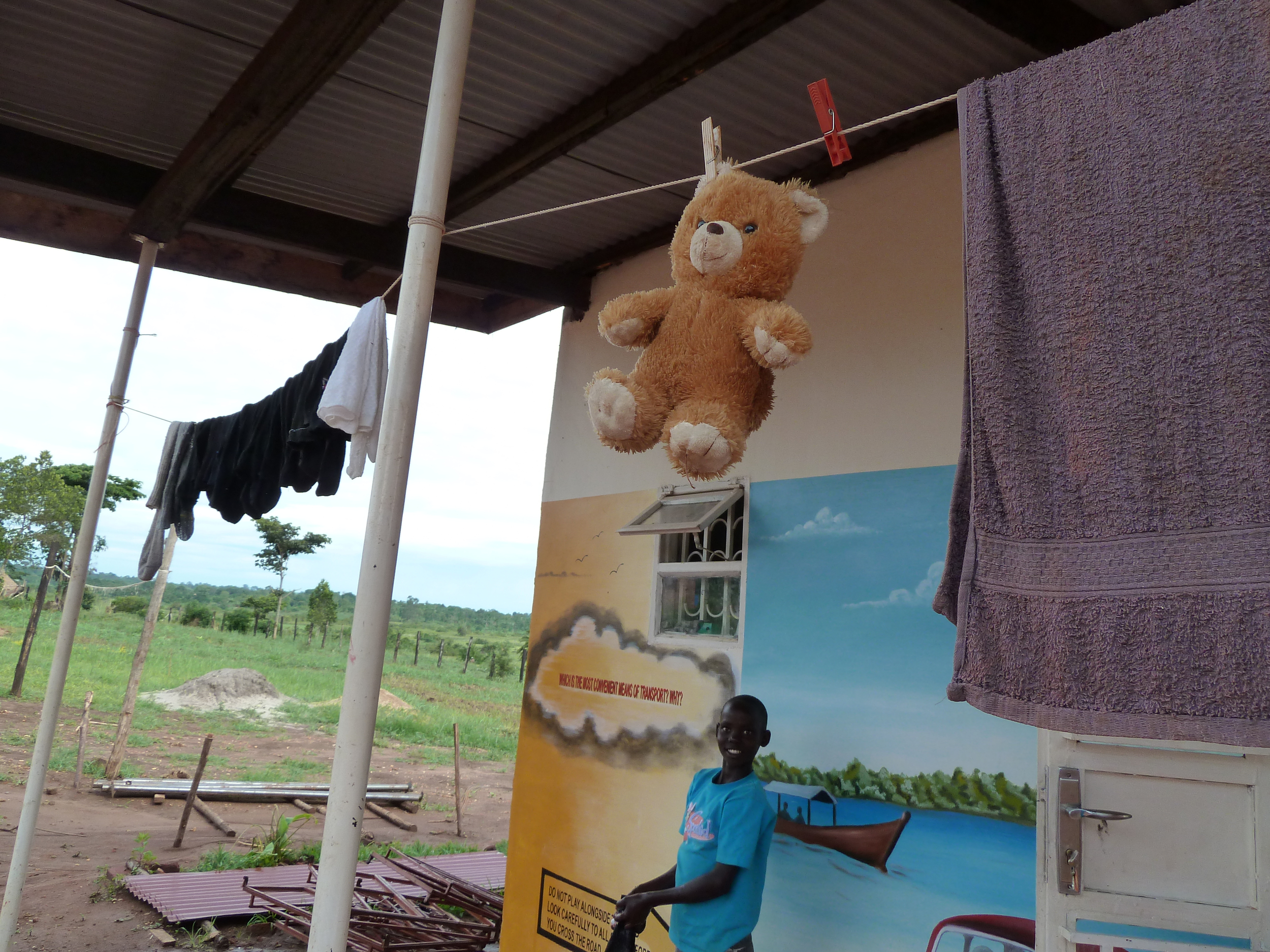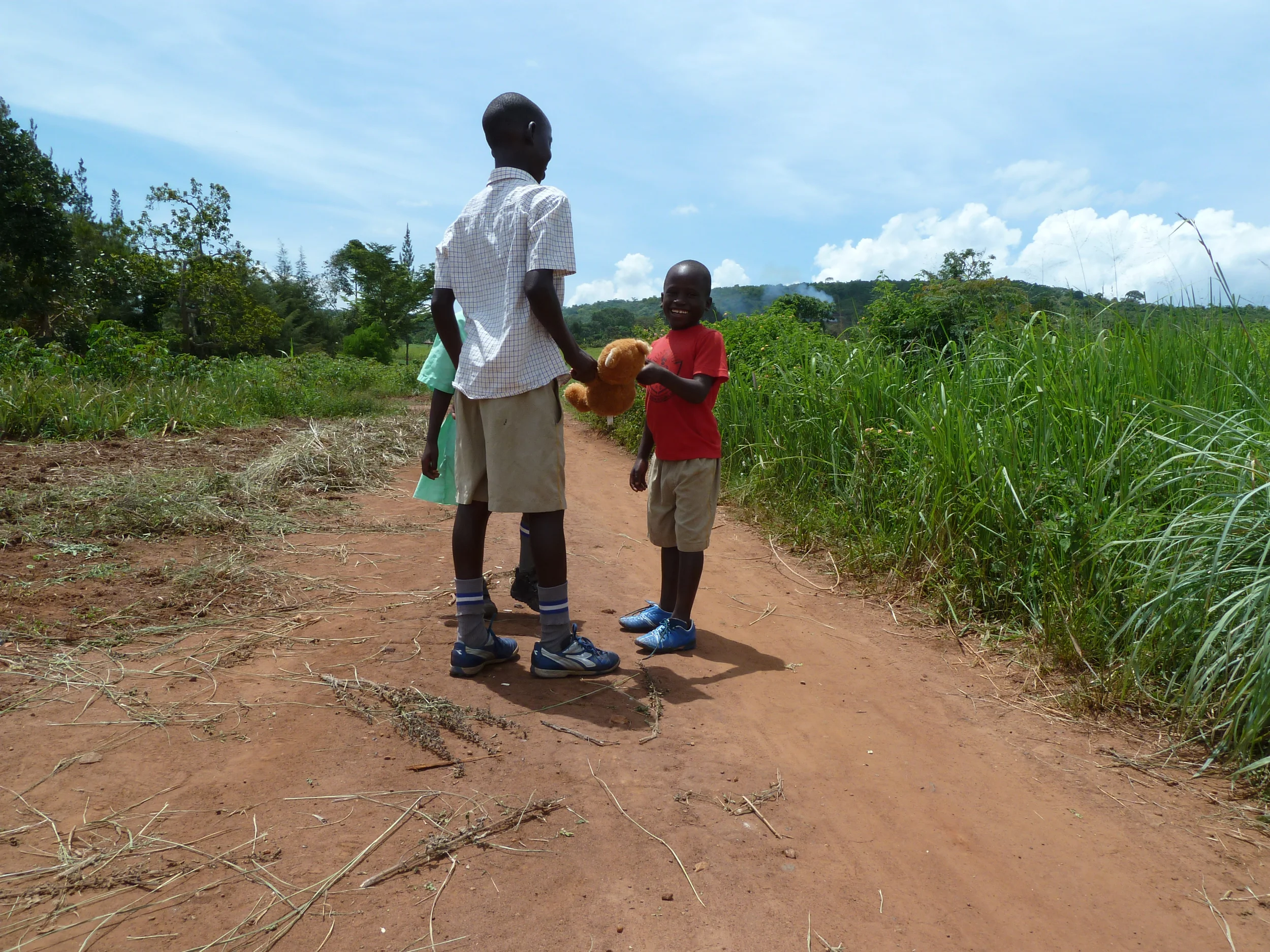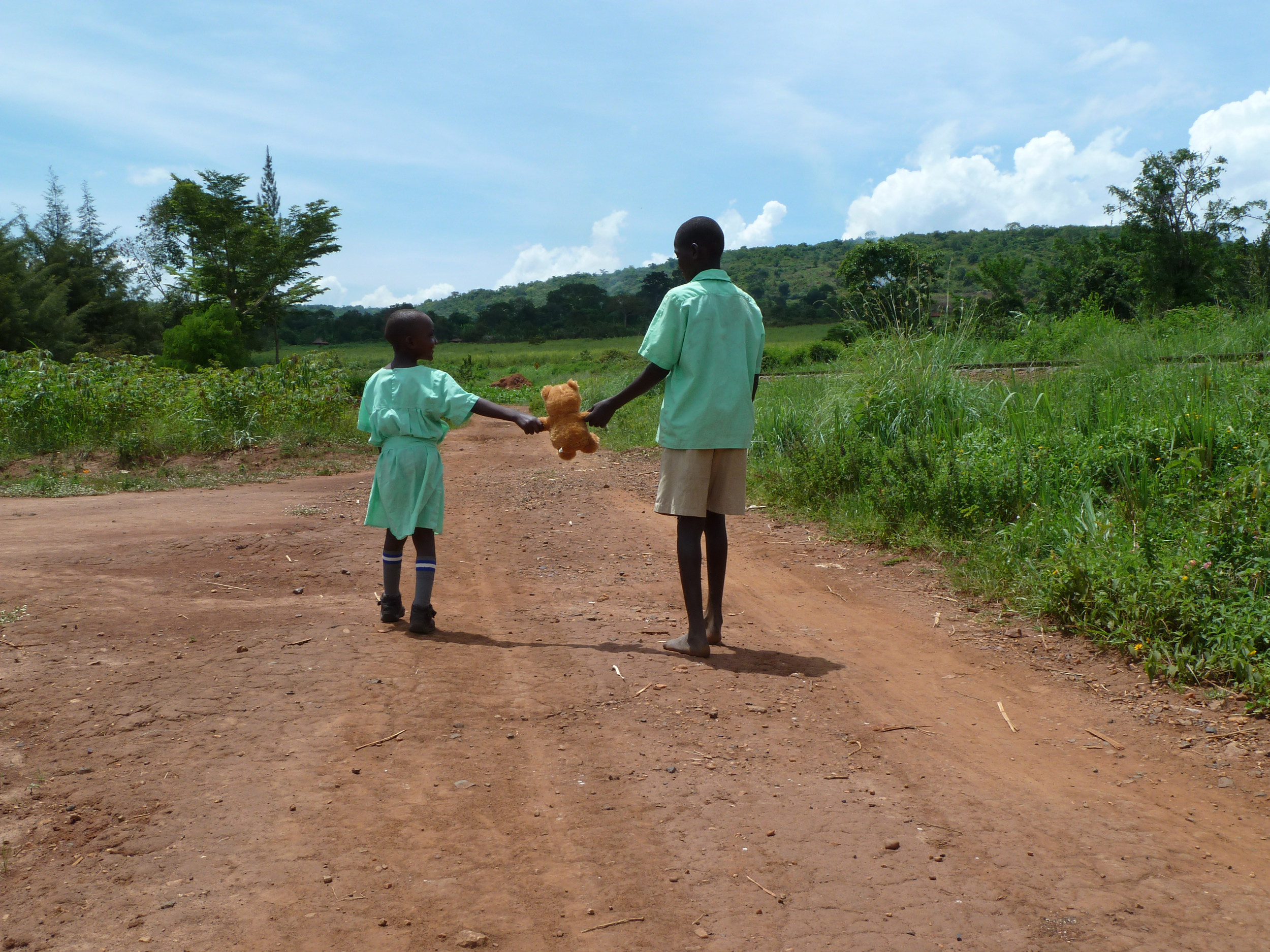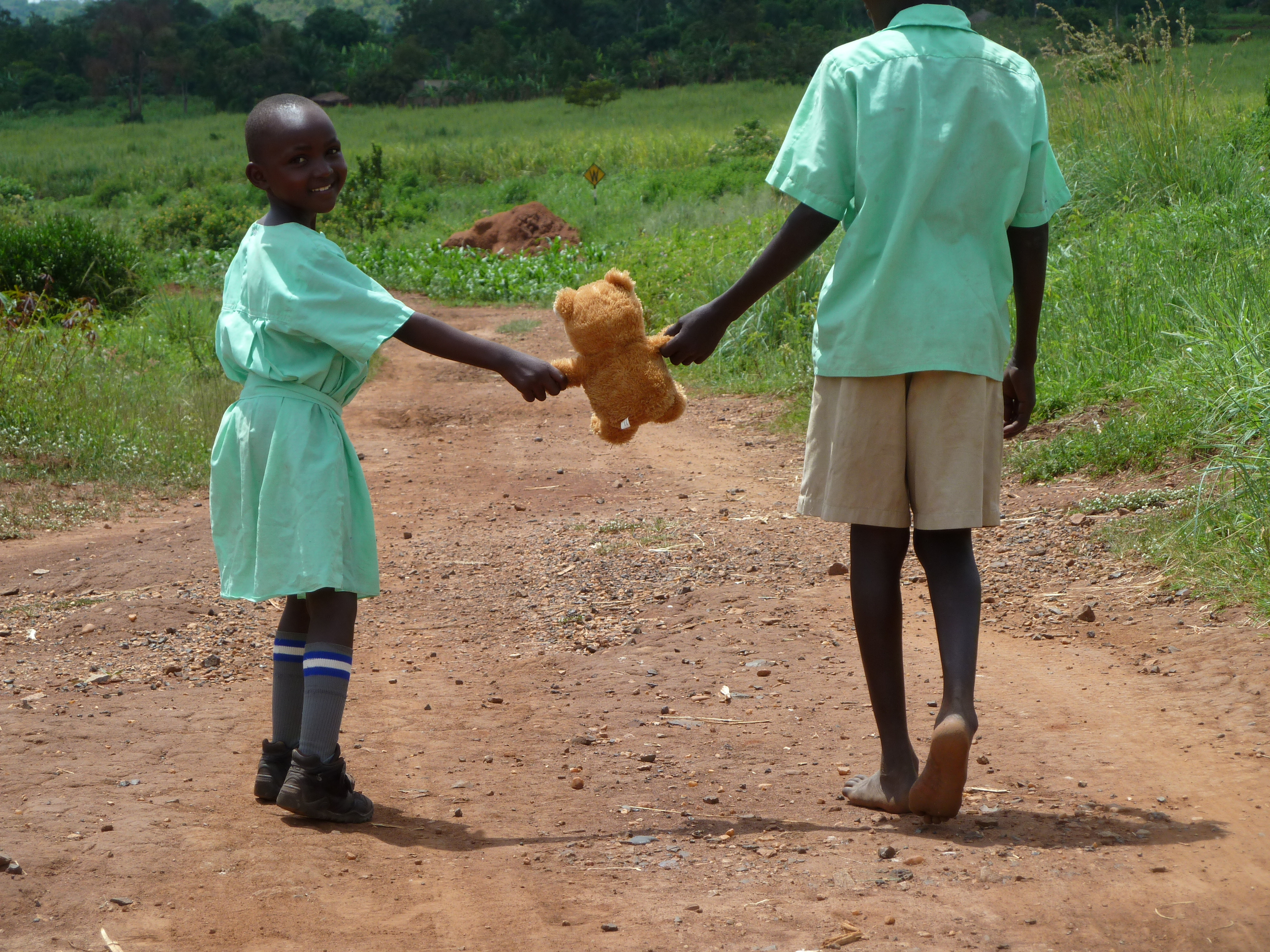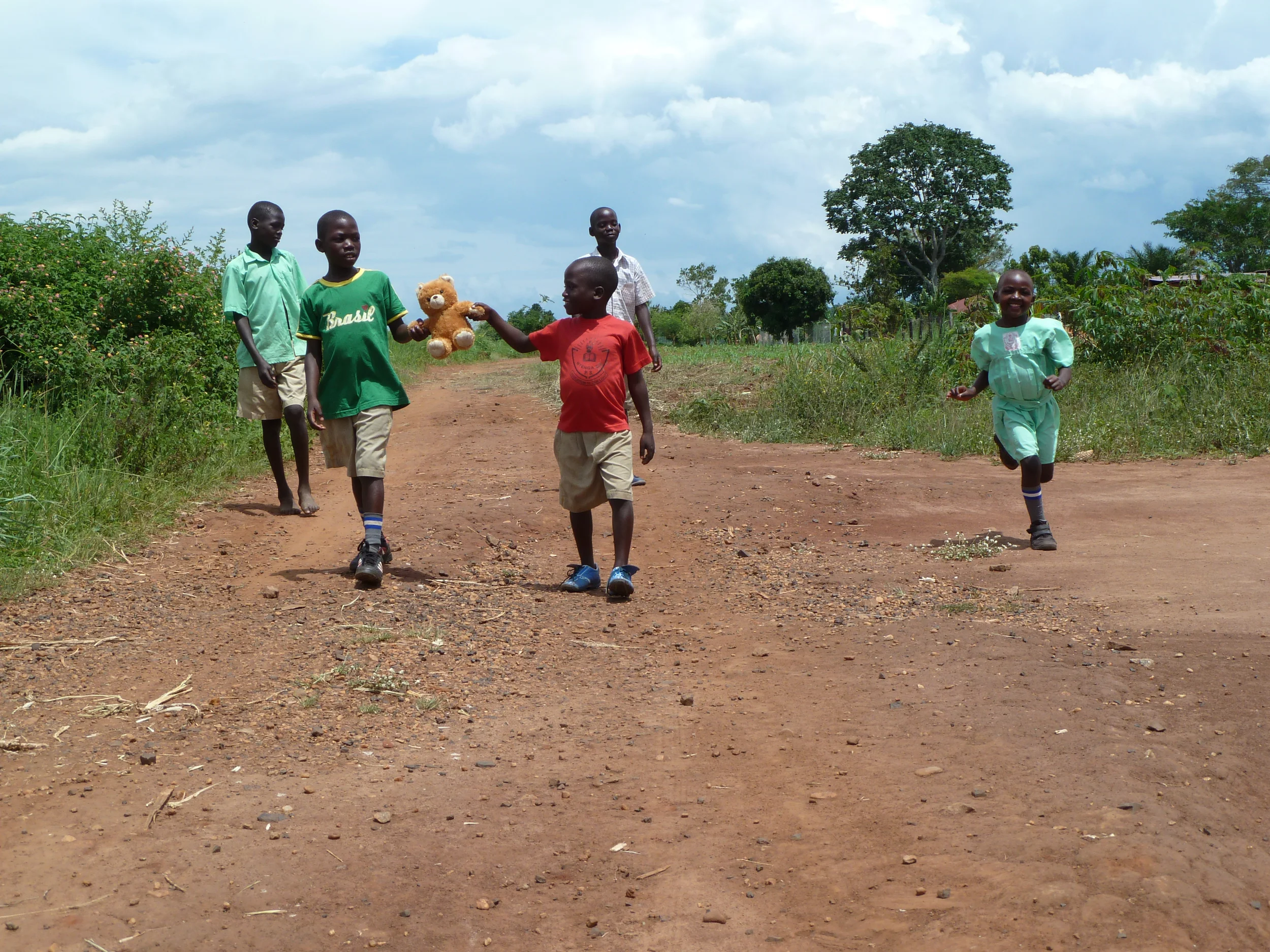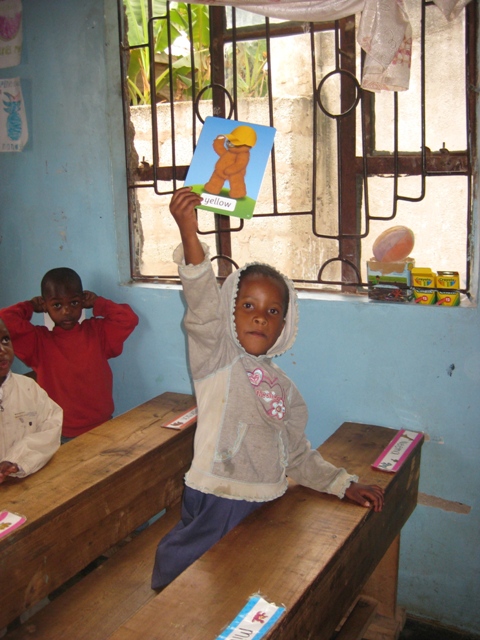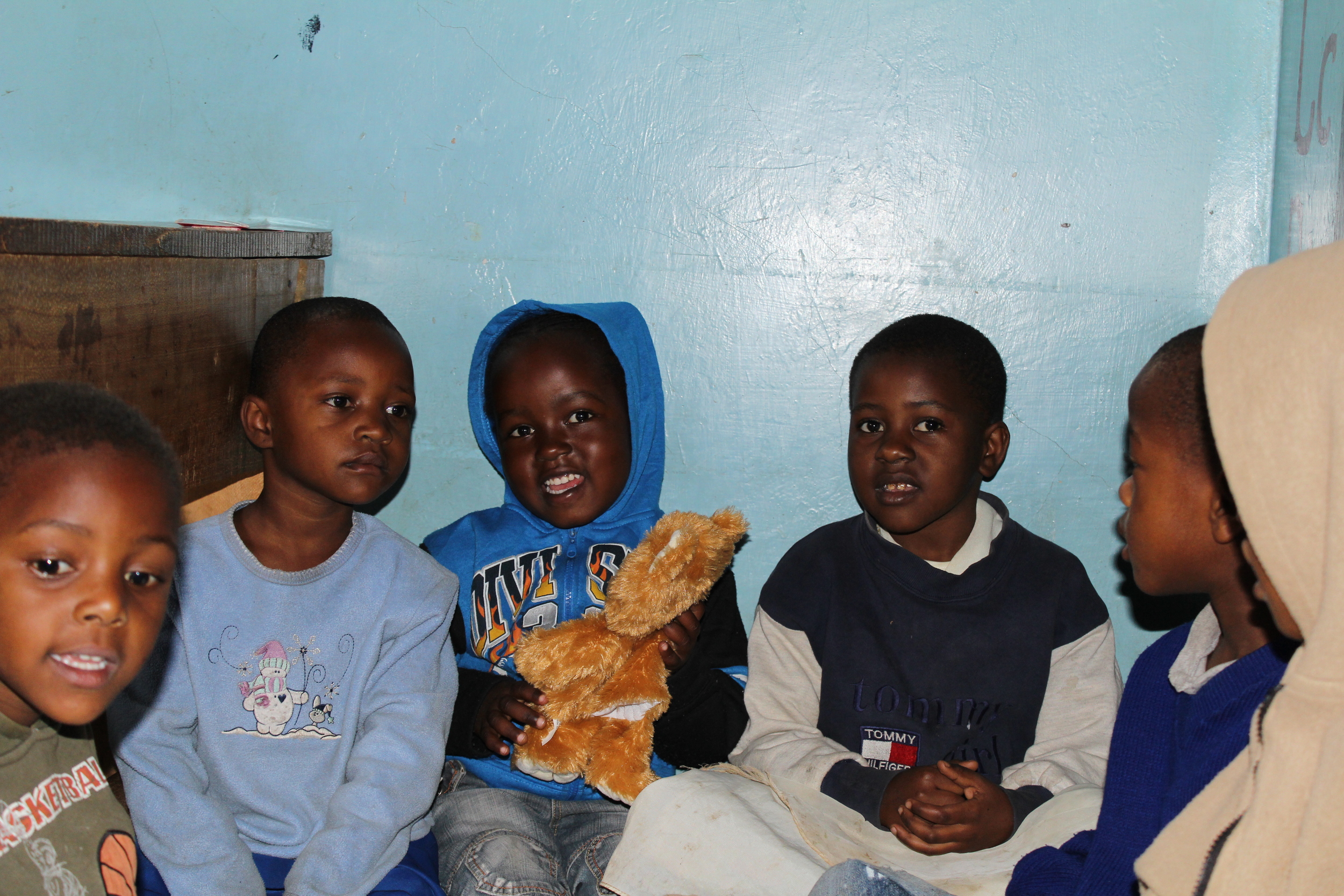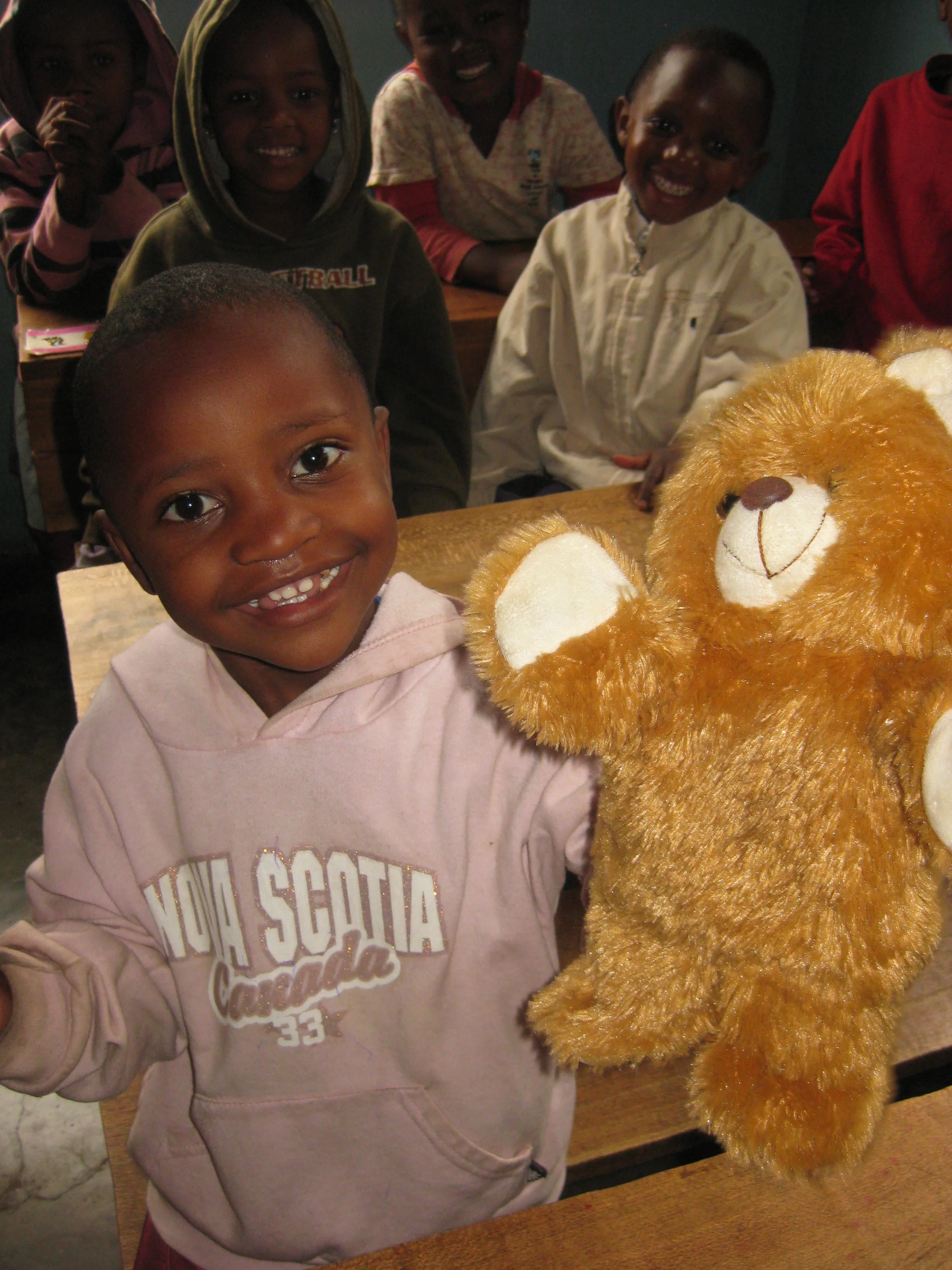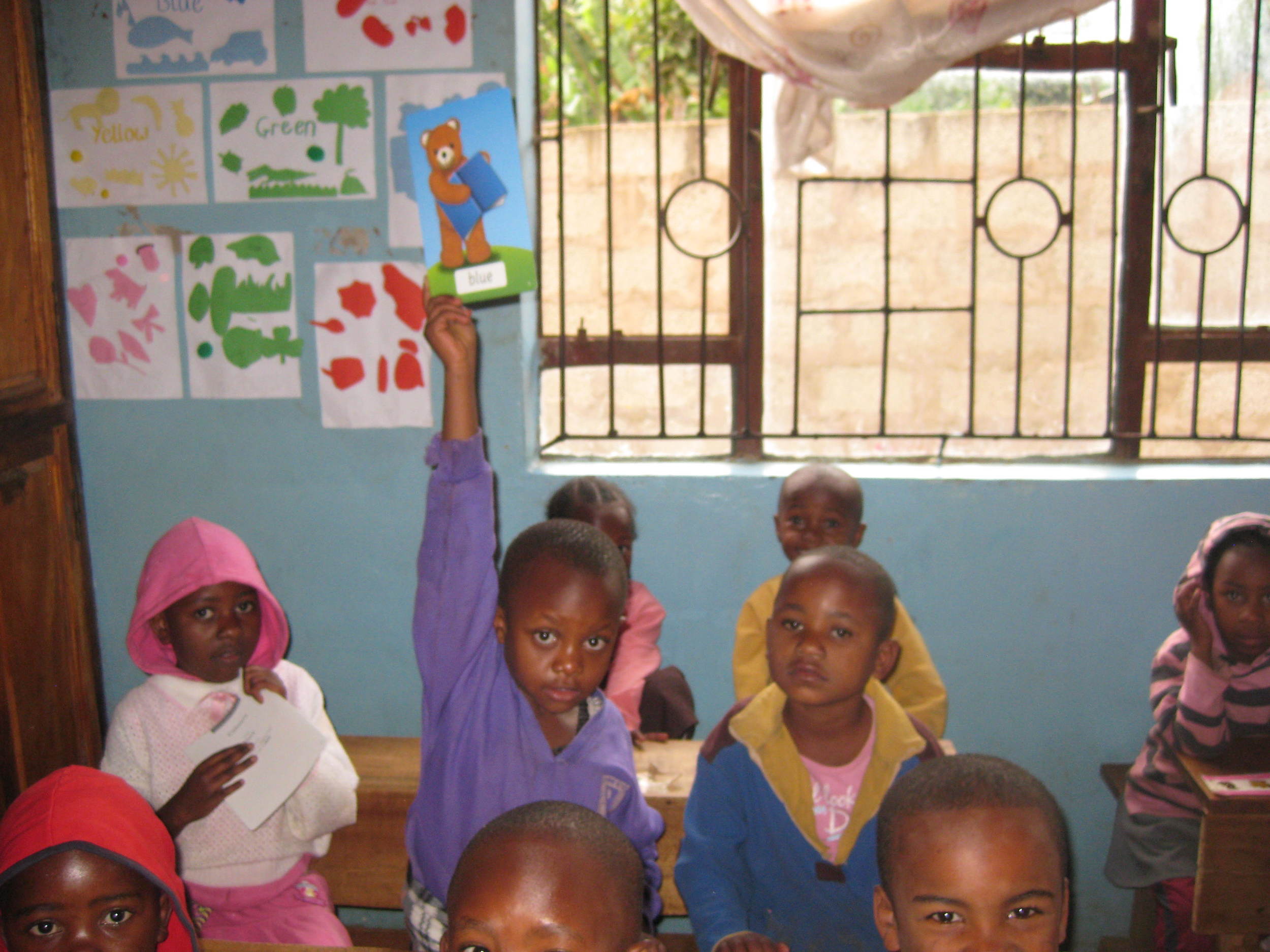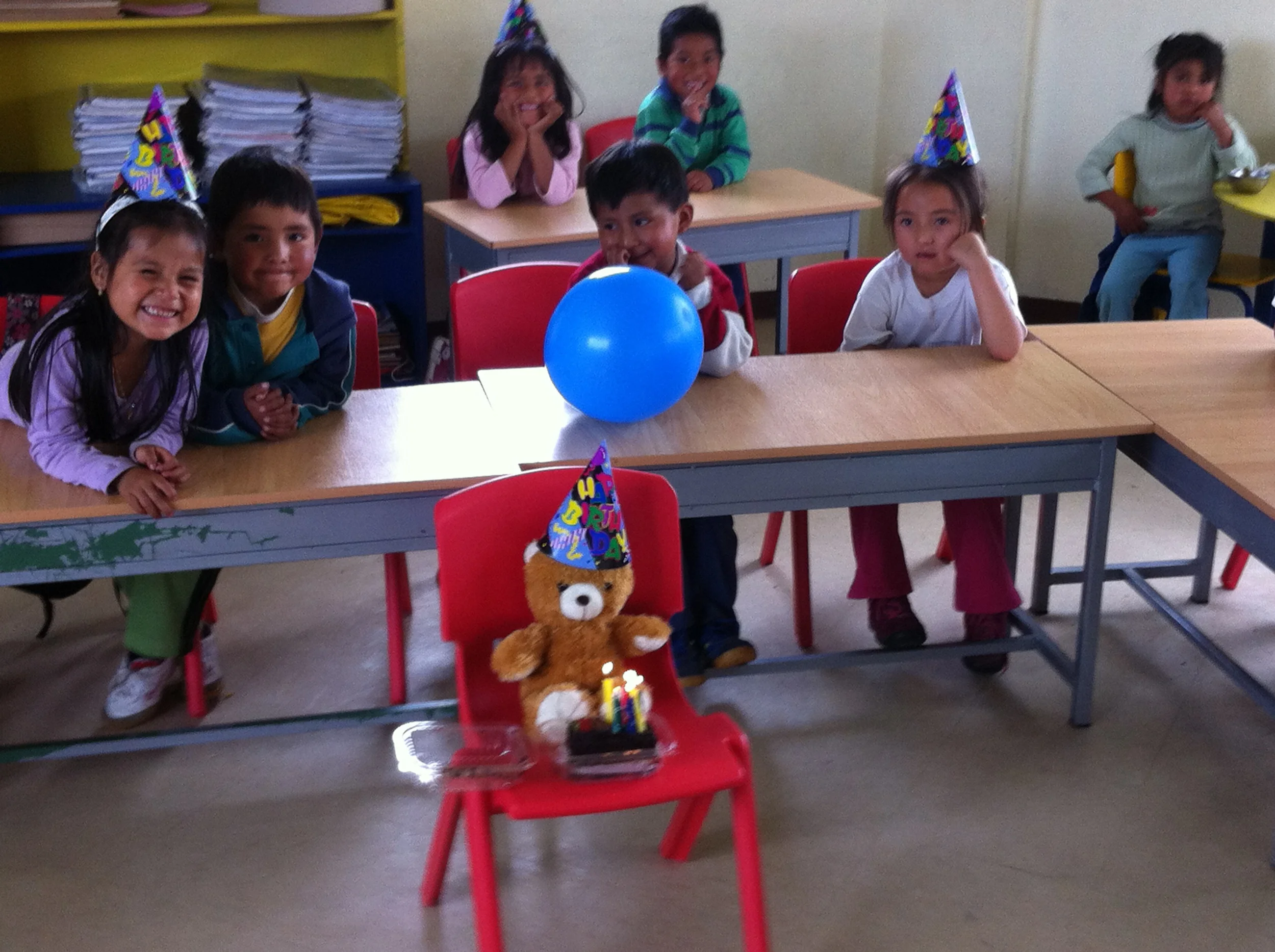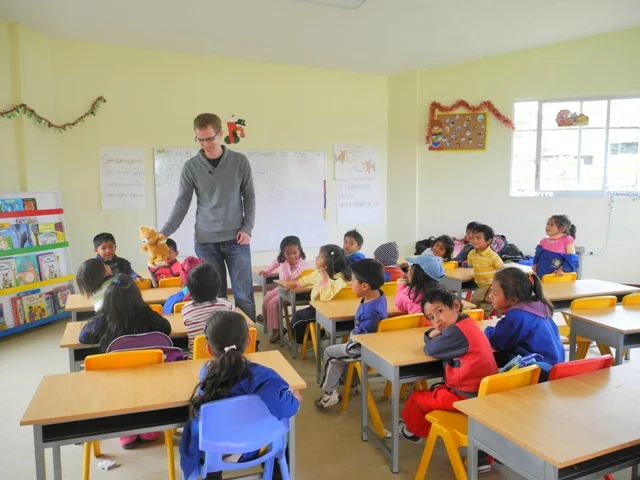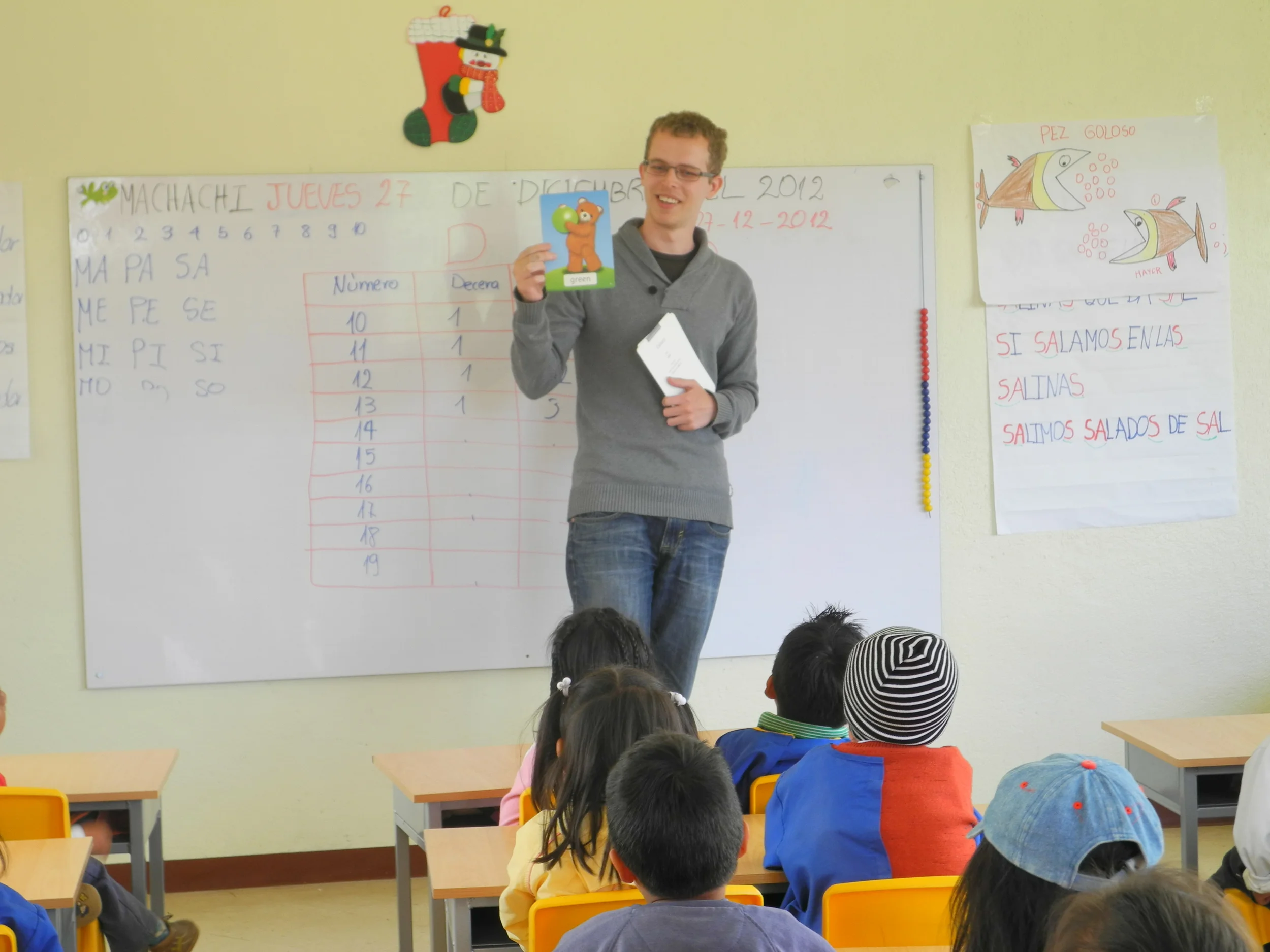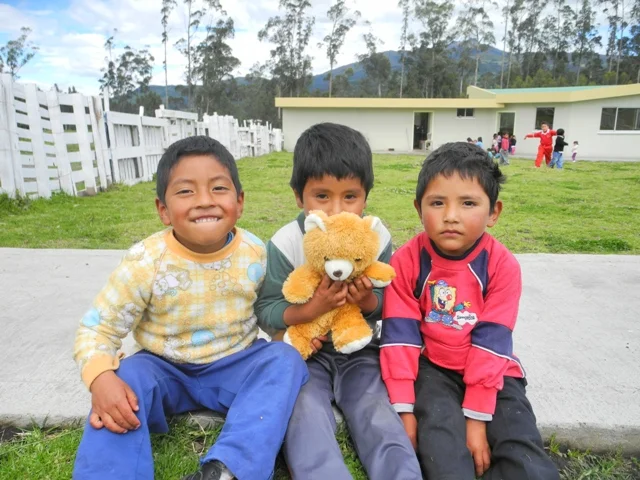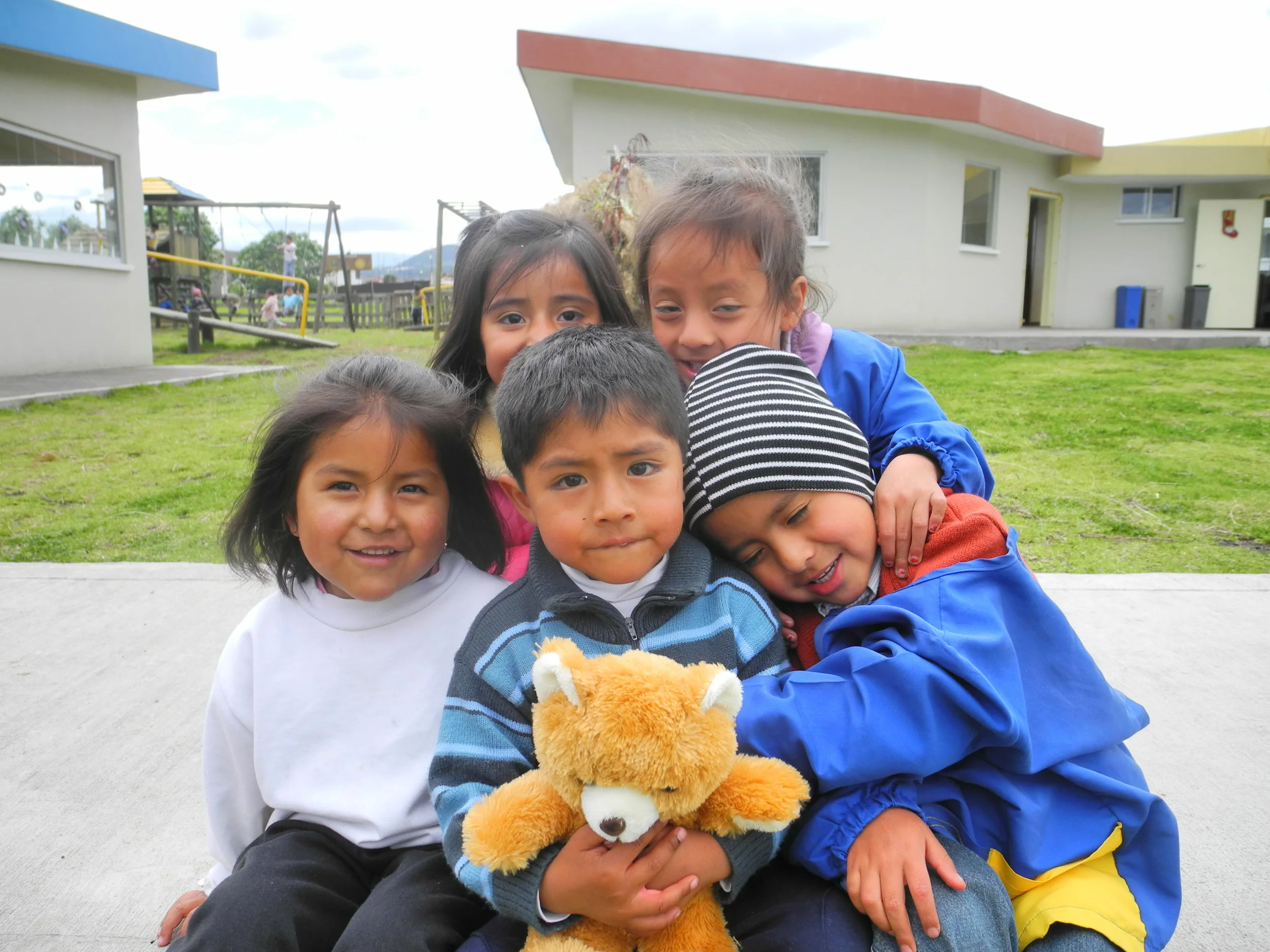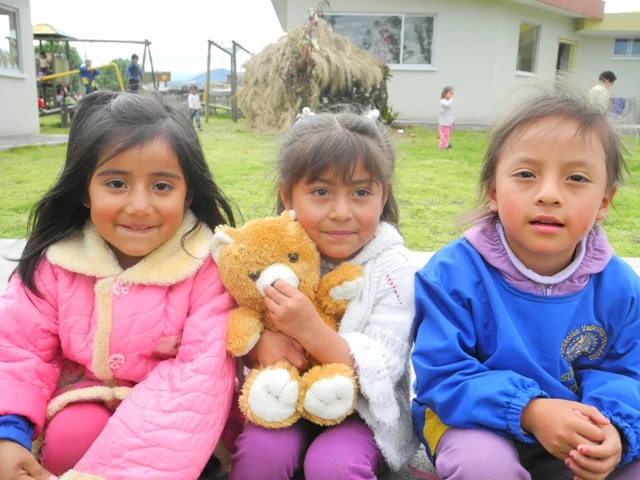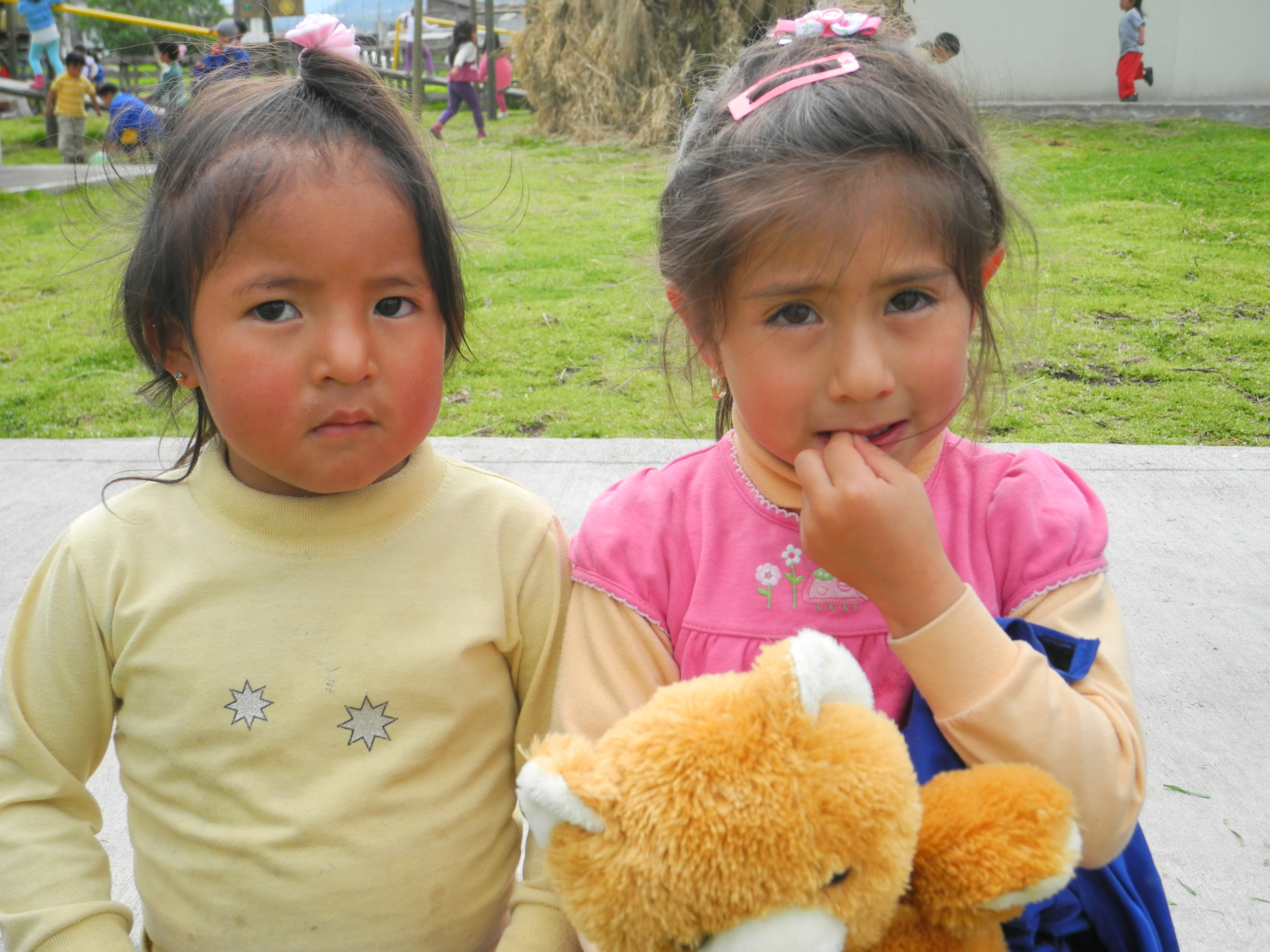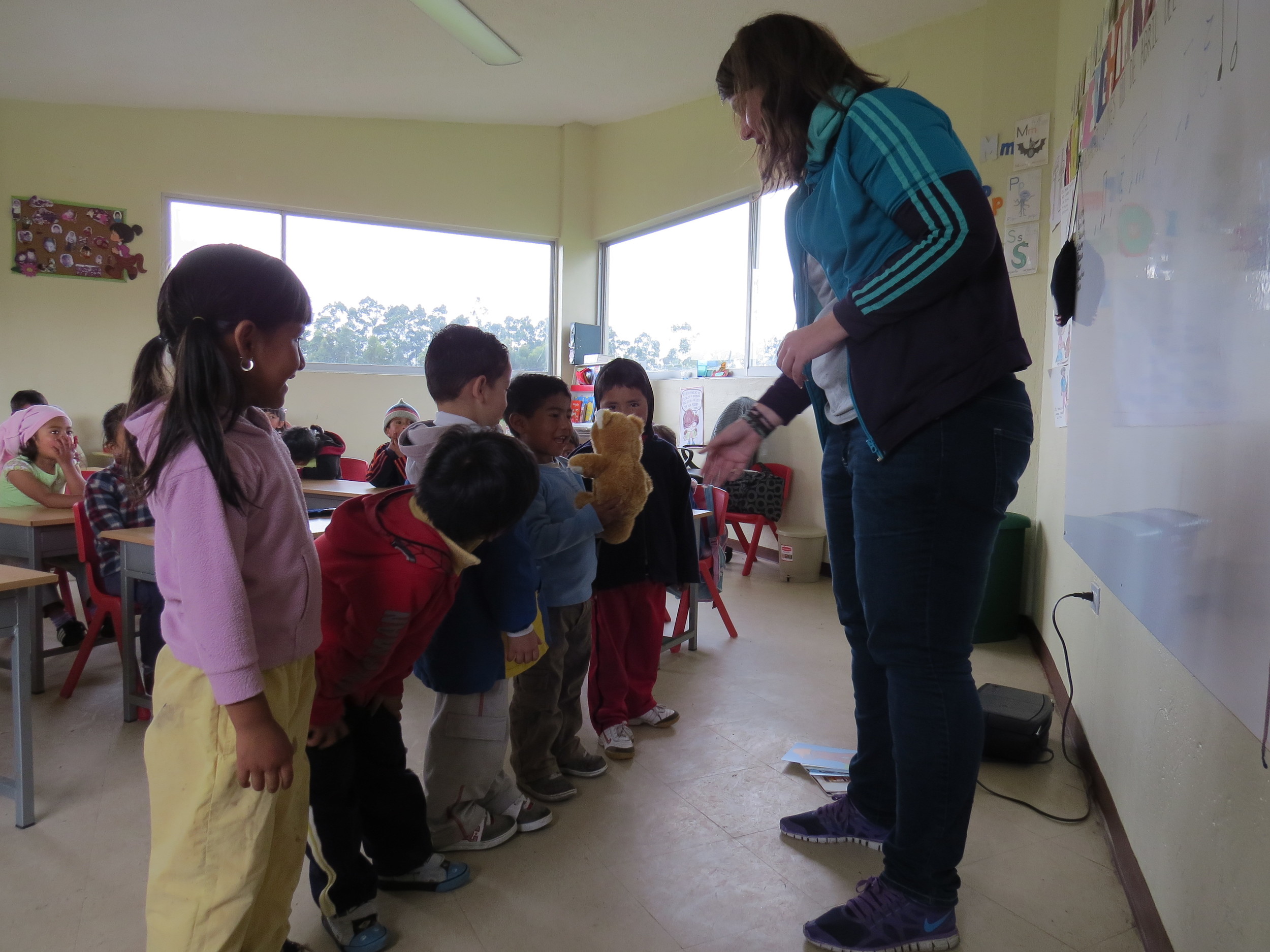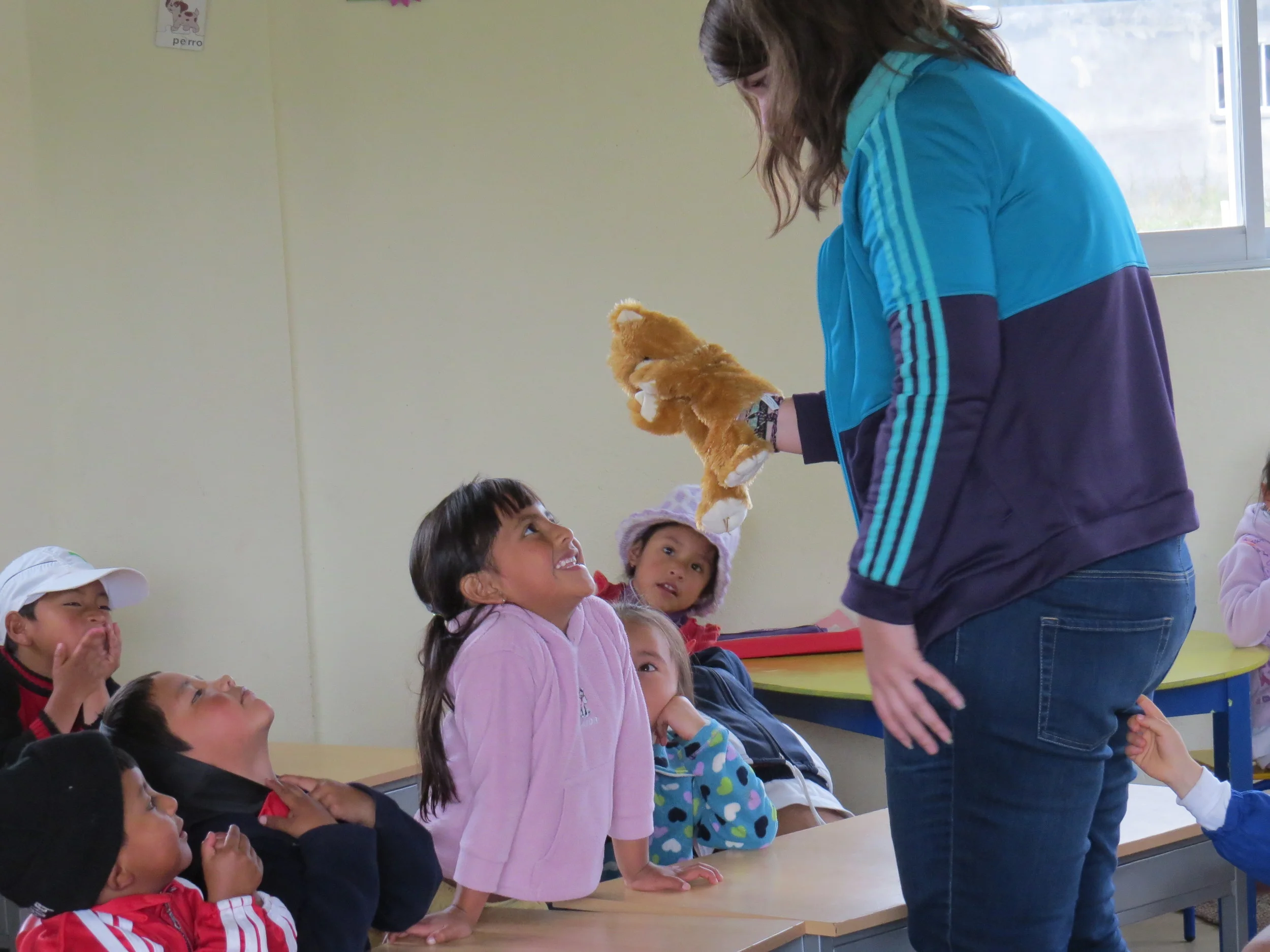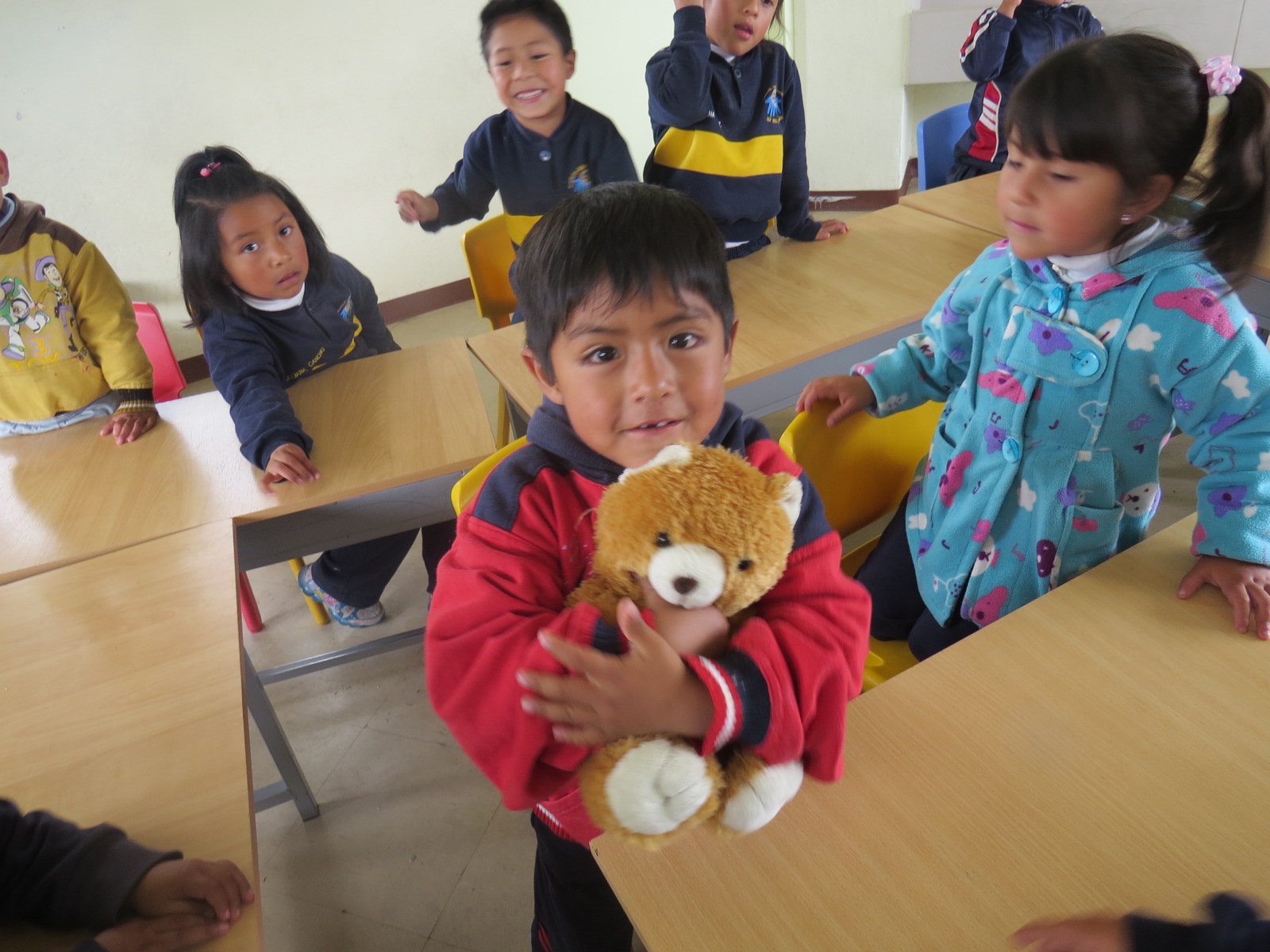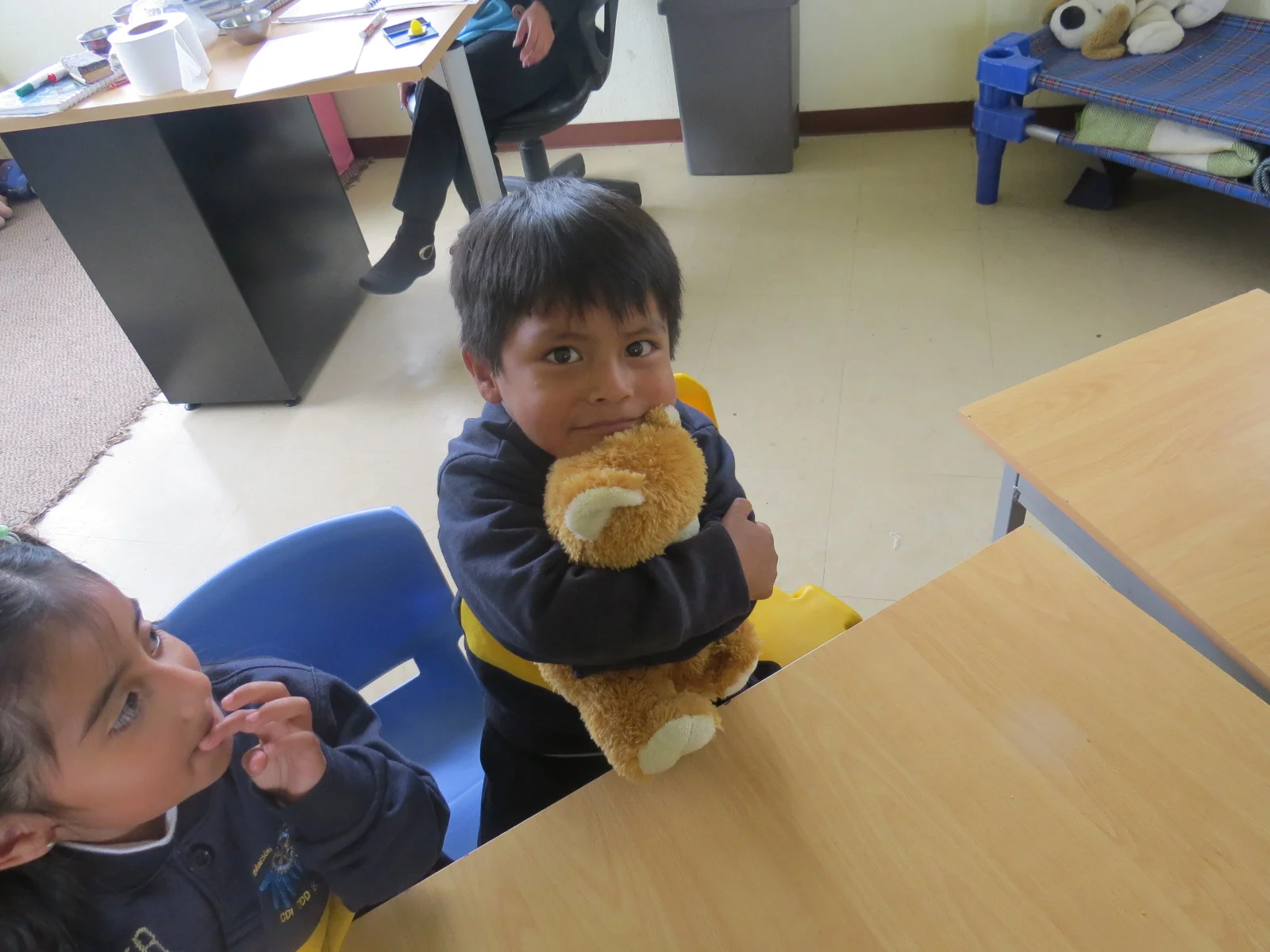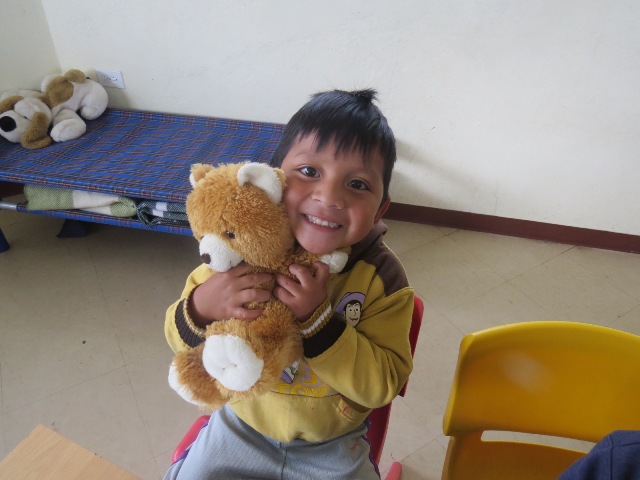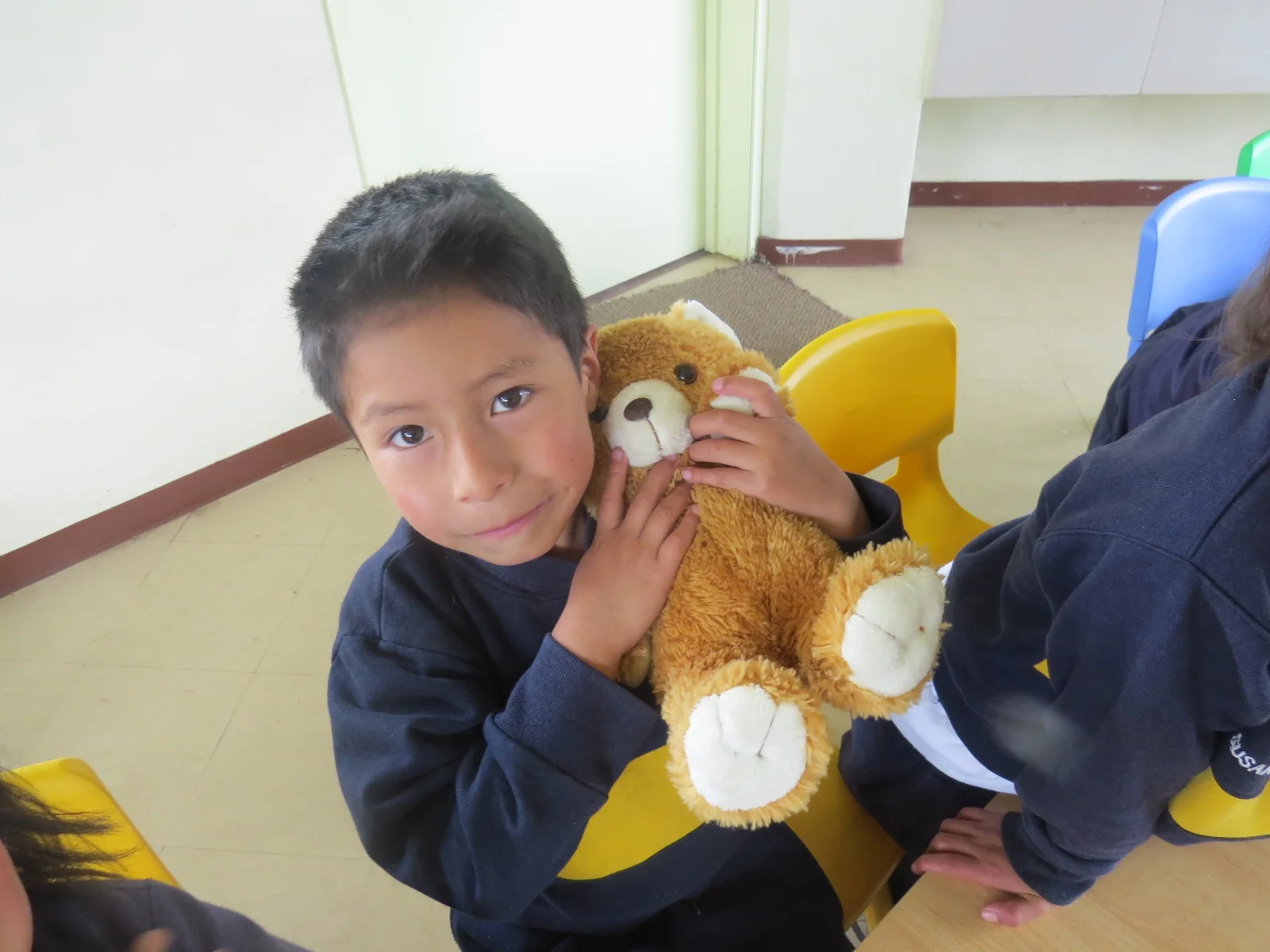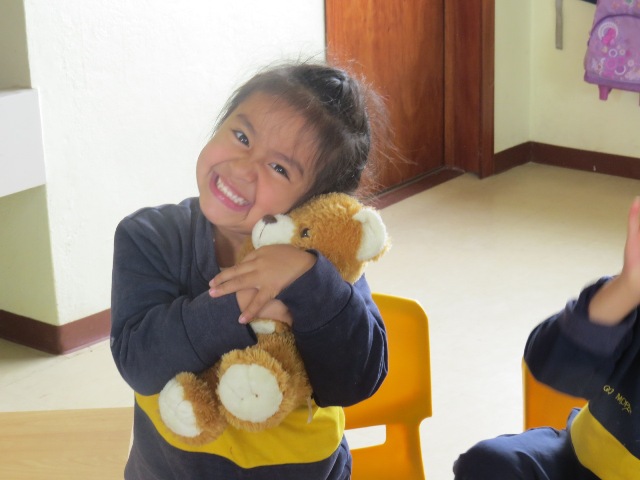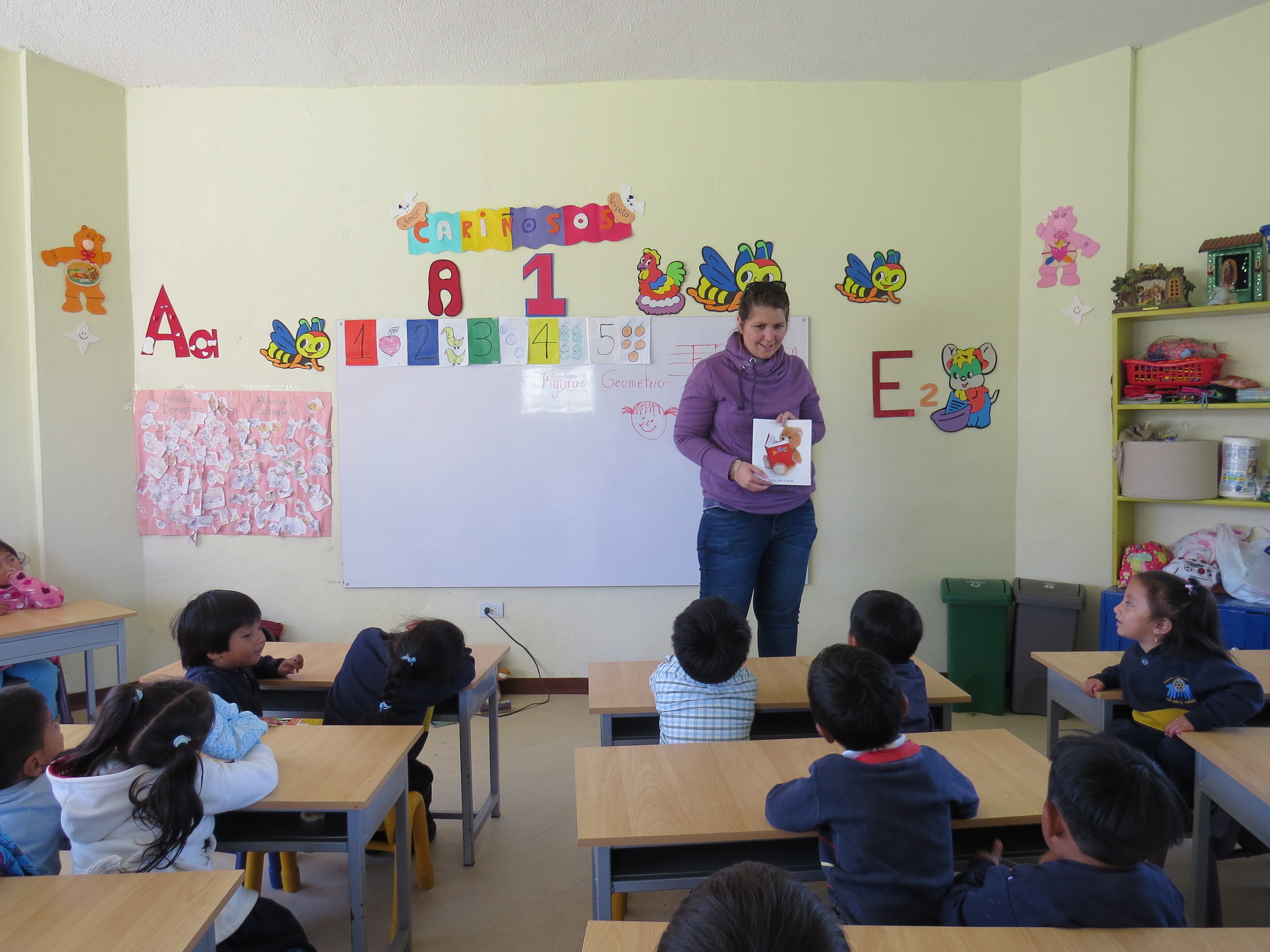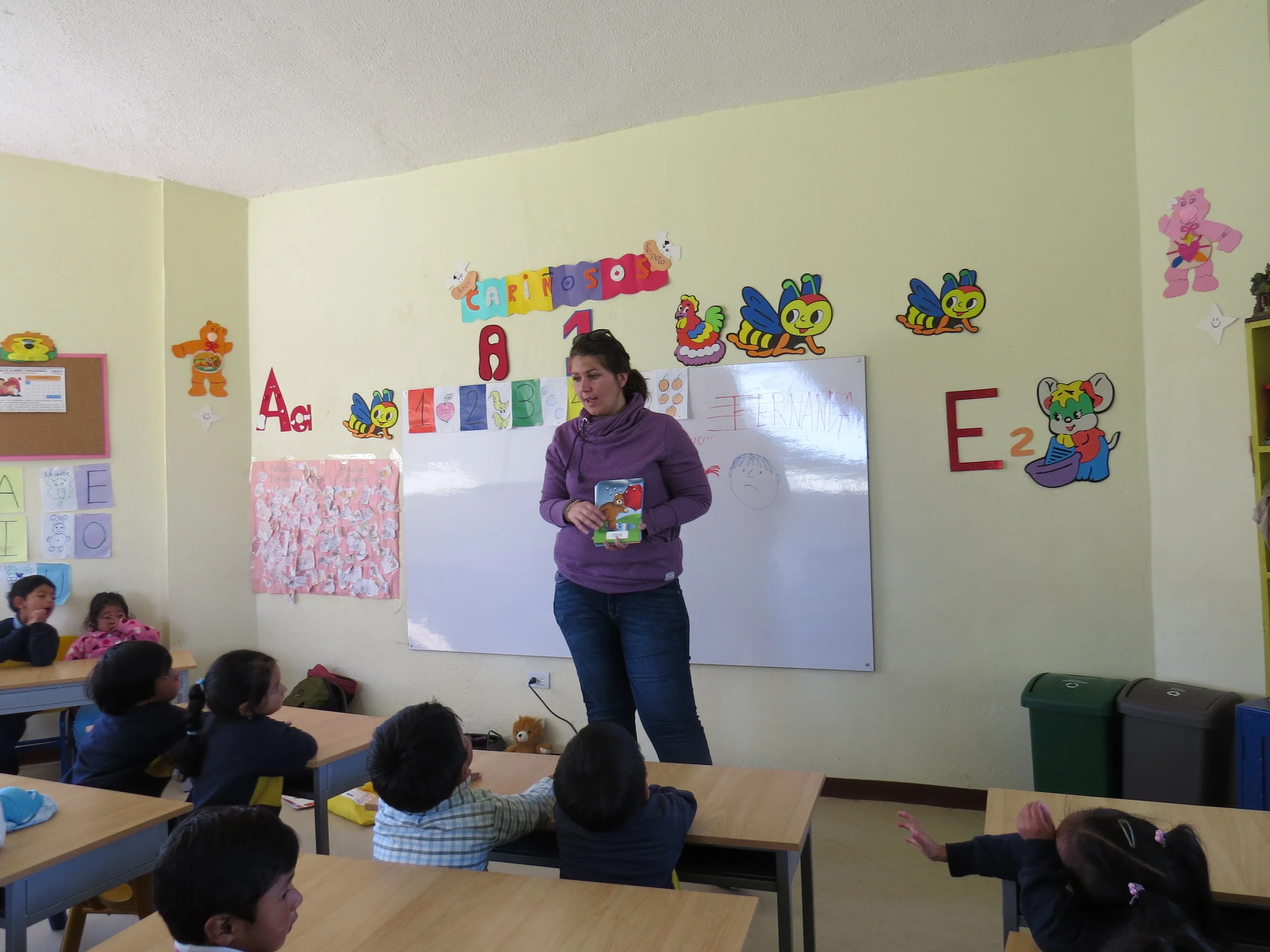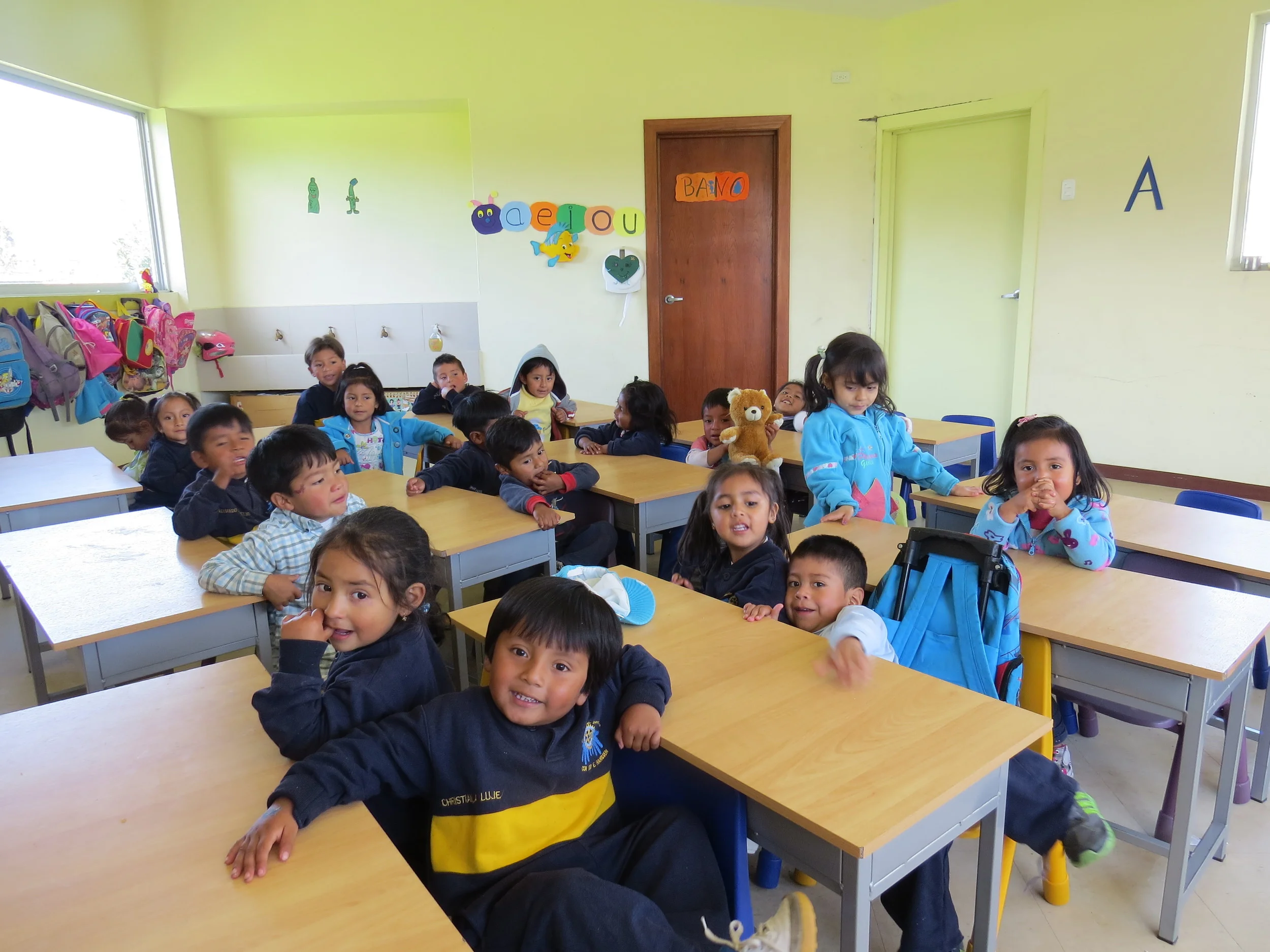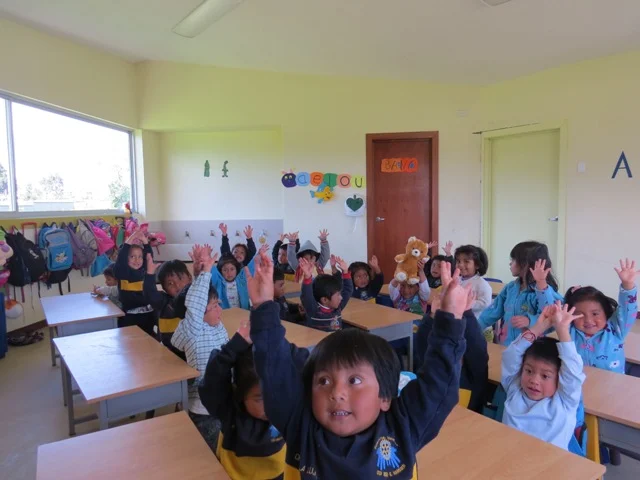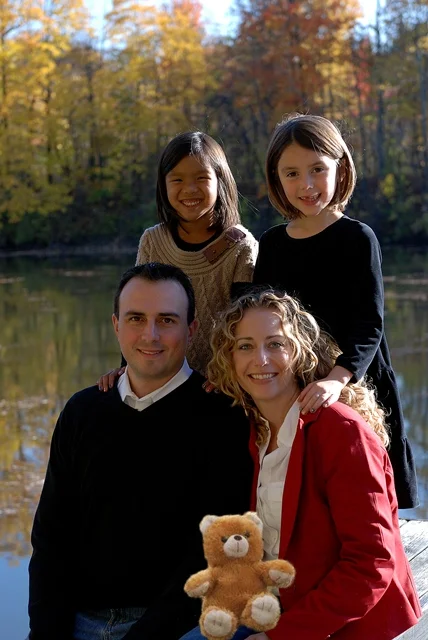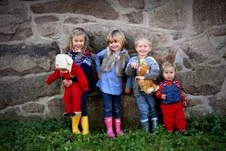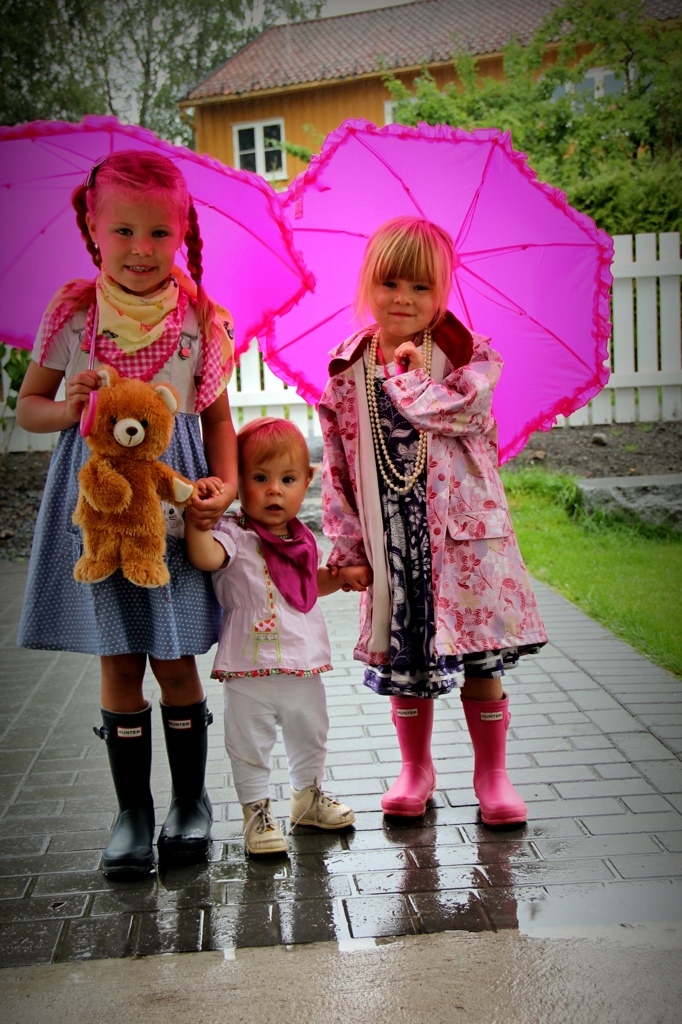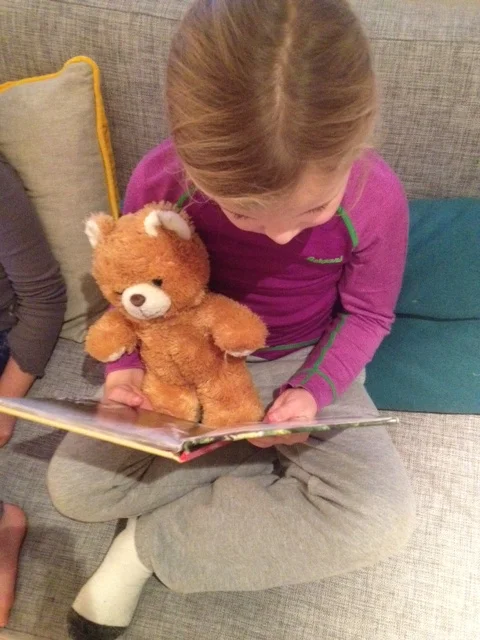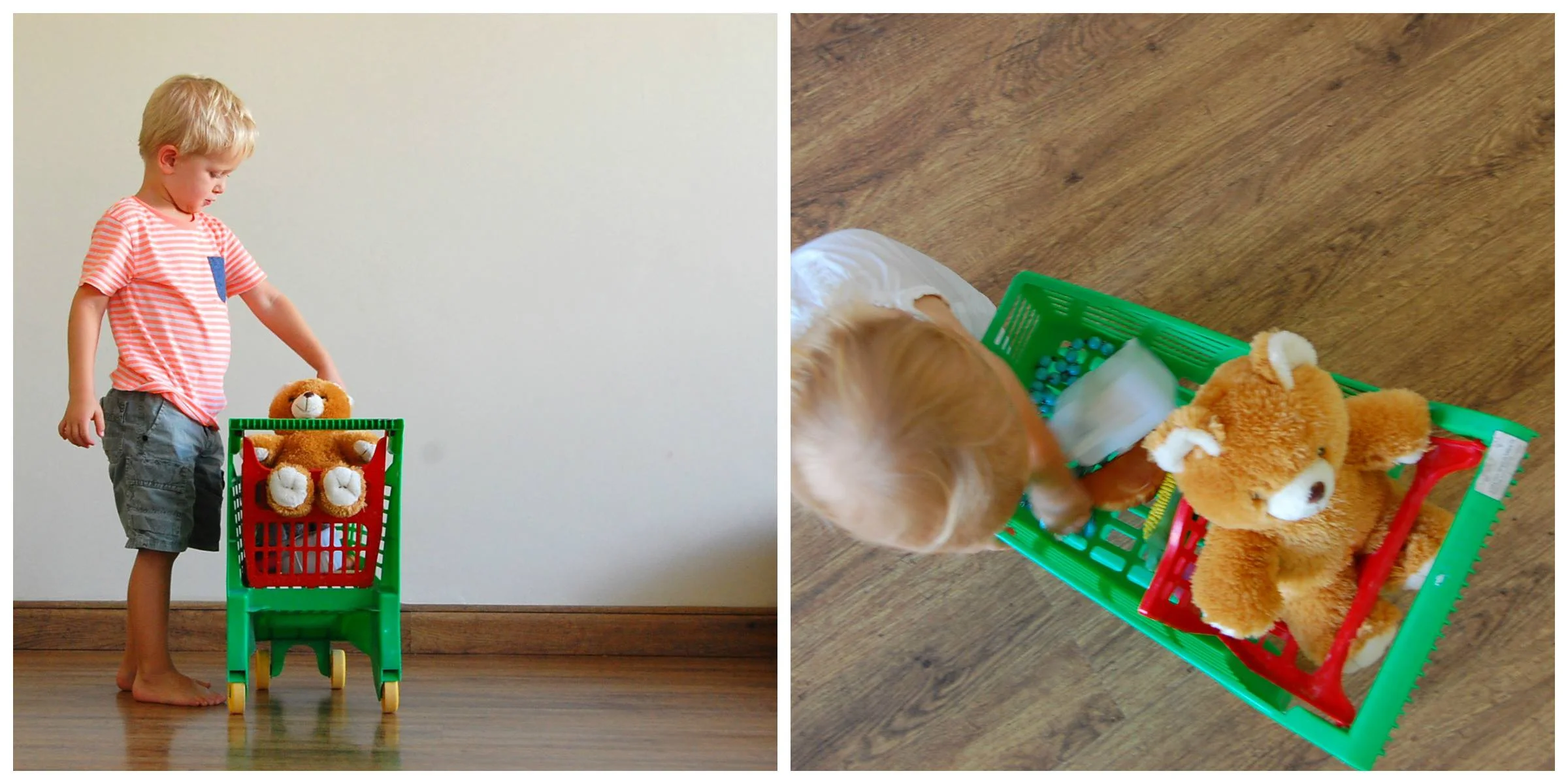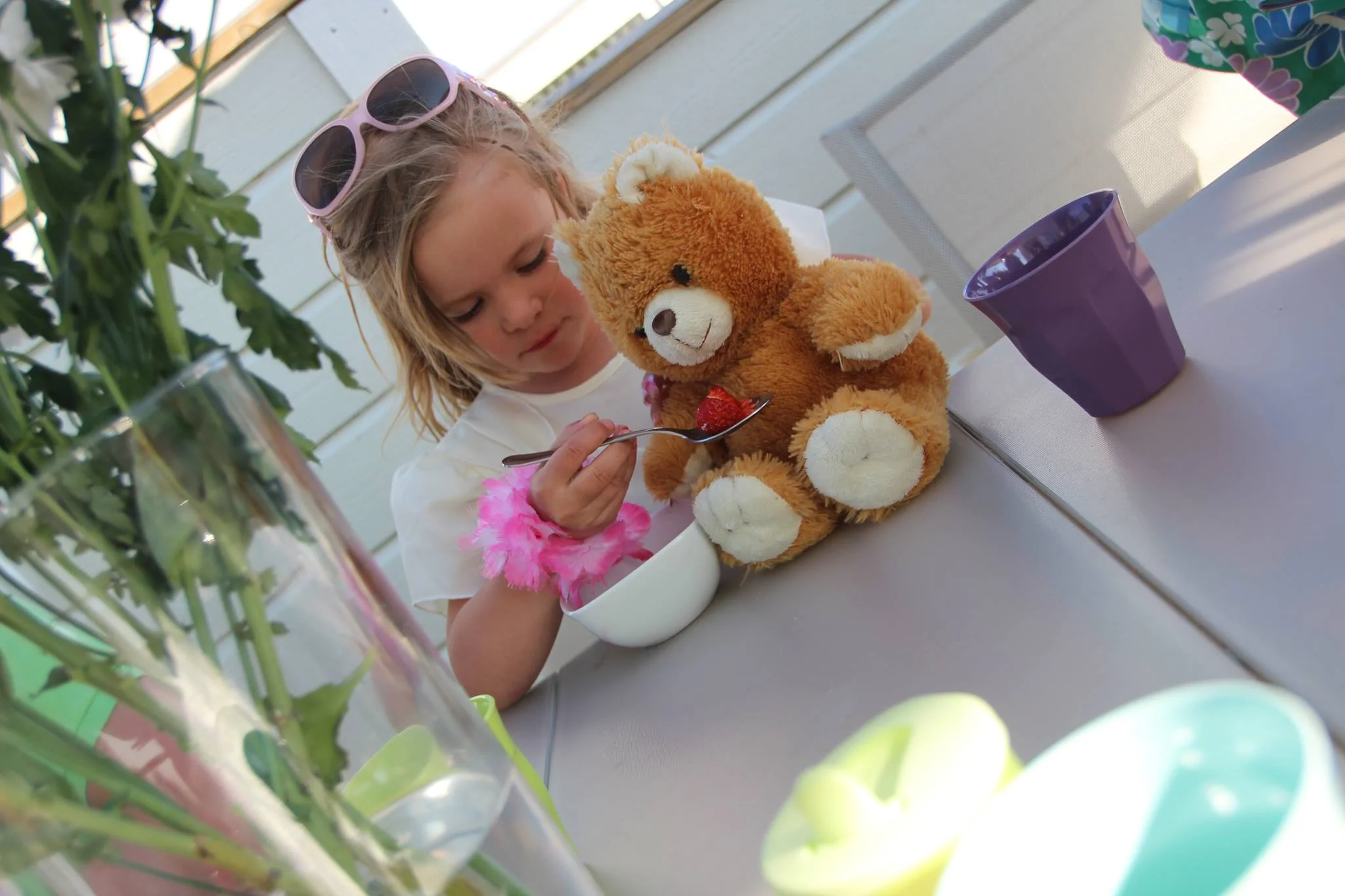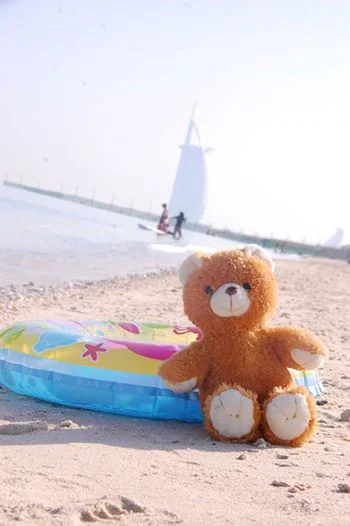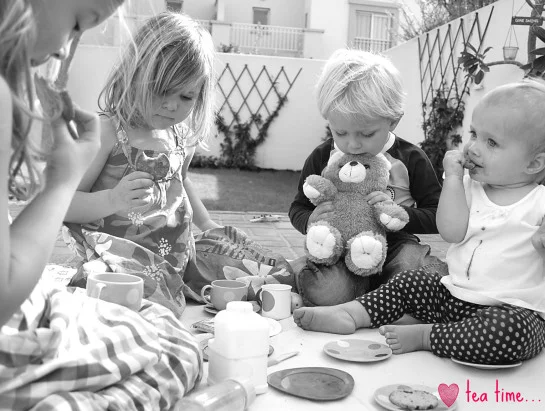Teddy around the world
Teddy has travelled all over the world to teach children English. Click on one of the countries below to see his exciting adventures.
Here are some of his stories from Nepal, Ghana, Tanzania, Uganda, Dubai, America, Norway, Ecuador and Lithuania;
Lithuania
Ausra Lastauskaite ( special needs teacher from Norway ) introduced Learning English with Teddy at three pre-schools in Vilnius.
Everyone liked Teddy !
They said hello , goodbye , learnt new words , mummy ,daddy , and wanted to read all the Teddy books !
March 2024
Nepal
Teddy has arrived in the remote village of Abiguan in the Himalayas - a 2 day walk from the nearest road after a 10 hour bus ride from the capital Kathmandu.
The new development for the Teddy Language Programme is to make it into a Teacher Training Programme. The main aim is to help Teachers in remote areas, who dont have access to hearing spoken English. Short tutorial videos have been made to help the teachers succeed in giving English lessons. Using an iPad they have access to downloaded books, songs and Tips for Teachers adapted from the Teddy programme.
The ipads are transported to these offline villages with Sherpas and Guides trecking in the area. When the Sherpa or Guide get the iPad they are given a short course in how the programme works so they can instruct the Teachers. The village does have electricity so they can revisit the Teddy programme many times.
Ghana
Lots of laughter when I read a teddy book to the children. The school is in Obuasi. We drove for 10 hours from Accra, the capital, to reach this village.
Uganda
A student called Ragnhild from Stavanger, Norway, did a six months voluntary work in a children's home in Uganda. She knew about the Teddy programme and wanted to try this out while working there. Armed with a Learning English with Teddy box she arrived at the home for her first English lesson. Knowing the positive response that Teddy has on all children, she was very excited to see how Teddy would be met by these children. Imagine her suprise when she took Teddy out of the box, and the children were frightened of him. After a while, though, they became used to him in the english lessons and even wanted him to join in with their daily activities.
Arusha, Tanzania.
Teddy in Arusha, Tanzania
I have been working in Arusha at an orphanage teaching English and math for 5 weeks now ,and had the time of my life. It´s has been so giving to see how happy they are, even though they have so little. Our classroom was about 10 square meters and that was all we had. That was where we taught, played, read, sang and ate.
The children age 2,5 -8 years fell in love with Teddy. From the first day they met him, Teddy put the biggest smile on their faces. We sat down in a circle and all the children got to say hello to Teddy and their names.
Since the children are not very good in English (their mother tongue is Swahili), it has been challenging to teach them English, but I found Teddy a good resource. By using the flashcard and telling the short stories, I got the feeling that the children understood some of the words. We mostly worked with colors and emotions. They love working with emotions; happy and sad are their favorites.
Thank you so much for letting me borrow Teddy.
Lene Helleland
Ecuador
Children of the Andes
From: Lene Marie Johannessen [lemjo@online.no]
Sent: 10. mai 2013 15:47
To: Julie Monsen
Subject: SV: Teddy
Hi Julie!
Everything is going fine! Sorry for the late reply, I´m very busy at the
moment, a mix of what I have to do and what I want to do before Im leaving
Ecuador. The 4 and 5 years old kids are doing really great! They know more or
less all the vocabularies for what I have went through with them. The small
ones are a bit trickier, but they are getting there, and they at least gets to
be in a environment with English.
We have a new volunteer now, Ronnie. From Spain but he is from a place that is
a British colony, so he´s 1. language is English and his Spanish is excellent
too so he will be great for the project. He don´t know how long he will be
staying, but at least 1 month and maybe more so he is the one who will
continue. I will send you pictures and films, just have to upload it.
My comments on the program are that it should have some changes if you want to
use the project outside Norway. I have not used the winter book since
irelevant for Ecuador, they don´t have snow so they don´t know what skiing and
snowballs are. I also find the sailing book a little hard, and teatime is also
a bit hard for the kids to understand so maybe you could have changed it to
something else for example different types of animals. Just an idea. Some of
the picture cards are a little confusing, they mix it up with other words
since they look like something else. It´s the same with some of the books,
like the Teddy goes shopping book. You are supposed to learn them the word
food but in the picture it´s only lemons and limes, then the kids are telling
me that it´s fruits. The project is easy to work with and the kids love Teddy.
Sometimes I hear the kids singing the hello Teddy song and the goodbye Teddy
song, even heard one of the teachers singing it (hehe, she don´t speak
English). Another funny thing is that the youngest kids are saying that it´s
the teachers mummy when I show the picture of the teacher in the second book.
They that English teachers are young since it´s more or less only young
volunteers having English classes. The kids are asking me about what every
word is in English and when they are having play time some of them come and
tell me what they can say in English so I think they are enjoying the classes.
Oh, I forgot to tell you that we had cultural week last week were the kids
demonstrated different kind of professions, experiments, had musical
performance and they had an English presentation! They song Happy Birthday to
you, to the leader of the project Odd Hanssen who had birthday last week, and
we ended the presentation with the kids saying "We love you". He got tears in
his eyes, so I guess it was successful.
Patrik, a swedish student, working at the school in Ecuador, taught the children English, for SIX weeks, using the Teddy materials. This is an interesting journal by this young student, who is not a teacher, of his experiences and challenges while using these materials.
Journal of English classes . Patrik Wilden.
Week one: Three-year olds. Lesson 1: the small kids are almost all very shy, and hard to get them to talk English. Often they laugh when I speak English. Nervousness?
Four year olds. Lesson 1: mostly enthusiastic, some nervous. Participates more actively than the younger kids.
Second lesson already noticing more willingness, from both age groups. Four year olds learn quickly, but still struggling with the little ones. ‘Normal’ teachers assisting with management of the children. Once they leave, it’s difficult to handle the kids alone.
I think the Teddy program works well. Feel it’s suitable even for teachers without a formal education, such as myself. Have not encountered any problems with it so far.
Week two: Lesson 1; three year olds still difficult, but taking it somewhat more seriously. Other teachers helping much in maintaining order. Four year olds are still learning quickly, and are embracing Teddy. Thinking if it’s time to move on to lesson 2 for the older children. Perhaps repeating this week too, and then moving on.
Week three: Lesson 1; very difficult to manage classes by myself. One of the main teachers was ill, so had no assistance. Do teachers get trained in preventing classes for spiraling into chaos? Four-year olds complain during and about English classes, but not sure if it’s because it was only me there and they got more brave to challenge authorities, or if they want to move on. Going to try lesson two with the older children this week. The younger ones still need lesson 1.
Week four: Started with lesson 2 with the four-year olds. Surprisingly excited about trying something new. The first class with the first group was very smooth, and the children were attentive and interested. The second group was somewhat more unruly, and was harder to control. The children have begun asking when they will see Teddy again when during recess (they don’t have to wait very long, as we have English classes almost every other day). Still, fun to see them excited.
Tried the second lesson with the three year olds as well. Went well. Noticed one girl who keeps laughing during class, which causes the others to laugh as well, making it difficult to keep proper control. Easier to manage that group now when I can ask that girl to be quiet and pay attention. Some of the younger ones are still nervous about speaking English, but overall they are improving.
I think we will have some small examinations during next week in all subjects, and it will be interesting to see how much English they remember. Hoping they at least know 30% of the words introduced, but even that might be too optimistic. We’ll see!
Week five: Continued with lesson 2. The four-year olds remember quite a lot actually. Positively surprised. They have some trouble differentiating the word ‘school’ from ‘Scooby’, though. Guess we need to practice that one more.
Only a few classes this week, due to examinations of all students in all subjects (as well as ‘practical’ skills, such as riding tricycles). The three year olds are also learning, which is good to see. There were no examinations in English. I think this was due to the whole thing with English classes is very new at the school, and there was no proper preparation for having examinations in the subject. Everyone is working a lot these last two weeks before the new holiday that was introduced this year. I suppose the whole thing with a new holiday (lasting 15 days, starting February 1st) kind of messes up the usual planning. The holiday also means that the next week is my last week working at the school, and only for four days. I’m not sure what the plans are for this week, but I think I should be able to hold classes with both age groups at least once each.
Week six: Busy week again, with more examinations. The children are separated into smaller groups to make the tests easier to manage, which leaves me with watching the kids who aren’t tested at the time. This left no time for English classes this week, and the children kept rotating for tests.
Conclusions: The Teddy program was very easy to use. I had no problems with it, despite not being an educated teacher. The lessons were fun, useful and easy to use. While we did not have a proper examination of how much the children had learnt, they were very enthusiastic during class – especially the later ones – and never wanted me to stop pressing the repeat button while playing the songs. I don’t think anyone will have a problem using the Teddy program.
America
The Lupolis are an American family who moved internationally in 2005 when their oldest, Grace, was just 8 months old. While living in Singapore God gave them another daughter, Ellie, by means of adoption. The girls are 17 months apart and love traveling and making new friends! In fact, they even tweet about all their experiences and they can be found on Twitter @elementaryexpat. They first met Teddy while living in Stavanger, Norway, and fell in love with him immediately! Carrie, Grace and Ellie's mother is a trained special education teacher and bonded with the Teddy project right away because of its positive impact on kids with needs. Carrie started a company in Singapore that provided support to children with special needs in their mainstream classrooms. In addition to overseeing the company from her new home in Ohio, USA, Carrie works as an educational and parenting consultant around the world and is currently authoring a series of parenting books to help moms and dads understand the power of play, developmental milestones and early intervention.
Read Carries blog entries
"Teddy the English speaking bear!"
Oslo and Dubai
Check out the blogg ''Best of 2 sisters''.
We are Camilla and Louisa, sisters and partners on our blog www.bestof2sisters.com (feel free to pop by to read about our modern international family life in Oslo and Dubai).
We grew up in an English speaking household, hence the importance for us to incorporate English as a second language to our forever growing families. Teddy has become a natural part of this, and we often include him in our daily lives, either during early morning breakfasts or in the weekends going on various excursions.



